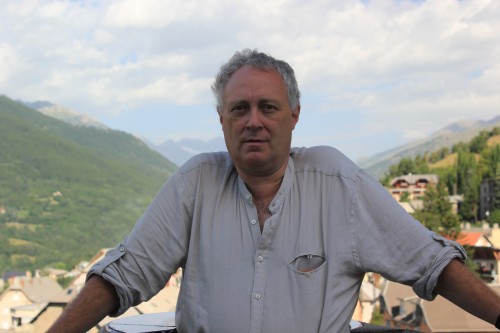
Европа, глобализация и метаполитика
Г-н Стойкерс, мы хотели бы начать наше интервью с описания текущей ситуации в ЕС, особенно в Северо-Западном регионе. Что вы могли бы рассказать нам об этом?
Ситуация в странах Бенилюкса представляет собой то, что я мог бы назвать тупиком: Нидерланды как мультикультурное государство с католическим большинством, хотя пару десятилетий назад ситуация была иной, с сильным меньшинством протестантов, включая кальвинистов, которые дали нации само ее рождение в 16-м и 17-м веках, атеистами, которые в настоящее время отвергают все формы религиозной веры, и мусульманским меньшинством из марокканской и турецкой общин иммигрантов, пытается категорически отвергнуть ислам, так как большинство иммигрантов не ведут себя должным образом в соответствии к голландскими стандартами и вообще не представляются достойными ислама, который будет соответствовать общей тенденции голландцев к порядочности, честной игре, респектабельности и мягкости. Нидерланды, в связи с доминирующей длительное время кальвинистской элитой, в настоящее время демонстрируют тенденцию подражать худшим британской или американской моделям, даже если католики, которые сейчас составляют большинство, склонны быть более восприимчивыми к немецкой или другой континентальной модели, будь то левые или правые. Исламофобский центр притяжения партии PVV ("партия свободы") Герта Вилдерса вынуждает голландское правительство следовать британской и американской внешней политике, хотя позиция бывшего исламофобского политического лидера Нидерландов Пима Фортейна, который был католиком-гомосексуалистом и был убит бандитом-псевдоэкологом, была направлена против интервенции Голландии в чьи-либо дела - он высказывался против военной акции в отношении сербов и за полный вывод голландских подразделений, которые были направлены в Боснию: это может и было реальной причина для его убийства, а не довольно агрессивная позиция по отношению к мусульманам, которую он занимал в своих политических выступлениях и брошюрах. Нидерланды, несмотря на то, что являются моделью государства в текущем кризисе ЕС, так как его финансовое положение относится к зоне евро и, кажется, остается довольно устойчивыми, но все же не без риска, потому что как и Испания, там есть спекулятивный пузырь в сфере недвижимости, который может взорваться в любой момент. Одна вещь, которую мы не должны забывать за рубежом: Нидерланды, вместе с Фландрией в Бельгии, постоянно производят огромное количество книг во всех видах гуманитарных наук, это темы, которые нас интересуют, но это, к сожалению, в значительной степени игнорируется в регионах, не говорящих по-голландски, где эти работы никогда не переводились и не цитировались в научных трудах, несмотря на то, что голландские и фламандские интеллектуалы в целом понимают, и читают, по крайней мере, на четырех языках и, следовательно, в состоянии сделать замечательный синтез.
Бельгия сейчас - это еще одно мультикультурное государство, разделенное языковыми границами, которые рассекли две основные католические общины - говорящих по-голландски фламандцев и франкоязычных валлонов (есть также небольшая община говорящая по-немецки на востоке страны, рядом с немецкой границей). В настоящее время фламандцы, как и голландцы, подвержены сильной тенденции подражать англосаксонской модели, а валлоны находятся под глубоким влиянием французских образов мышления. А немцы, конечно, под сильным влиянием немецких идей и дебатов. Эти "низкие Страны" представляют собой невероятное лоскутное одеяло из идей: вы более нигде не найдете таких больших потоков идей, широко распространенных среди населения и, наоборот, вы найдете все, левых или правых радикалов, иногда выражающих очень оригинальными способами, однако из этого широкого круга идей не получается никакой социальной сплоченности. Даже в рамках основных политических партий (либеральная, христиане-демократы, социалисты), тенденции довольно многочисленны как среди лидеров, так и боевиков. Основной тренд, конечно, поддерживает западную точку зрения в рамках НАТО, хотя все оппозиционные элементы, исторически (Хармель) или в настоящее время (Коллон) могут сильно критиковать идеологию и практику НАТО. Кроме того, люди на самом деле не заинтересованы в операциях, начатых в Ираке, Афганистане, Ливии или Сирии. Они не поддерживают армию, отправленную в этих страны, куда вторглось НАТО (конечно потому, что армия больше не является по призыву), так же, как Пим Фортейн требовал вывода голландских войск из бывшей Югославии. Лично я думаю, и я повторяю это снова, что это и было главной причиной его убийства, а не преднамеренный акт сумасшедшего активиста, чьи идеи парадоксально обосновали проНАТОвскую позицию преемника Фортейна в голландском популистском идеологическом течении, т.к. Герт Вилдерс, чей отец родился в католической провинции Лимбург близ немецкого города Аахен, и мать которого является индуской из Индии, скорее всего, довольно враждебны к мусульманам. Лояльность сына по отношению к матери может объяснить некоторые исламофобские подходы его партии...
В "низких странах" вы можете воспринимать множество изолированных реакций против Системы. Как пример можно привести усилия самого известного за рубежом политолога, воодушевленного Хомским, такого как экс-маоистский активист Мишель Коллон во франкоязычной Бельгии. Бельгия, тем не менее, является довольно проблемной страной, даже учитывая то, что три "низких страны" относятся к сильнейшим экономическим государствам в рамках ЕС. Последствия кризиса и рецессии сейчас ощутимы в Бельгии, когда цены на продукты питания и первой необходимости намного выше, чем во Франции и Германии, а общая покупательная способность населения резко снизилась. Бельгия сохраняет свою относительную стабильность только из-за гигантских клиентов соседей, которым является Германия, покупающая товары в Бельгии для производства других товаров в Германии для реализации на русских и китайских рынках. Так что Германия, и в "переводе", как сказал бы учитель математики, Бельгия и Нидерланды, - это основные партнеры Евразийского альянса стран БРИКС, даже если НАТО-ориентированная трэш-элита не хочет так считать, несмотря на экономические и коммерческие факты и цифры. Таким образом, "маленькая Бельгия" разделяет часть немецкого пирога в Евразии: в высоко коммерческих закрытых собраниях хорошо знают об этом и некоторые умники мечтают о выздоравливании позиции Бельгии, как было до 1914 года в России (когда Россия была главным торговым партнером Бельгии между 1890 и 1914 гг.), и даже в Китае, куда регулярно направляются коммерческие миссии.
В заключение этих коротких мыслей о "Низких странах", я хотел бы предложить русским друзьям создать небольшое закрытое собрание по голландским и фламандским исследованиям с целью сбора полезной информации, чтобы никто другой больше в долгосрочной перспективе не смог получать прибыль.
- Сейчас в Южной Европе воодятся меры жесткой экономии, это чувствуется на Северо-Западе? И что насчет всеевропейской солидарности или концерте наций в контексте кризиса?
Вы, наверное, знаете в России, что трагедия в Европе в том, что северные нации имеют не высокое мнение о их южных соседях, и политический мыслитель, такой как Жан Тириар, который остается источником вдохновения для меня и для профессора Дугина, сильно сожалел об этом. Большинство людей в Северной Европе говорят, что надо заставить Испанию, Грецию, Португалию и Италию принять эту политику жесткой экономии, однако, думая таким образом, они отказываются принимать во внимание простой факт, что спекуляции банкиров с Уолл-стрит против более хрупких стран Южной Европы являются спекуляцией против ЕС в целом и это была попытка уничтожить евро в качестве альтернативной валюты к доллару, которую некоторые страны БРИКС могли бы принять в качестве средства для регулирования международной торговли. Атлантистская слепота мешает лидерам ЕС воспринимать эти спекуляции американских банкиров как крайне смертоносное оружие в новых невоенных формах войны, так же, как шпионаж против европейских лабораторий и инженерных бюро через систему "Эшелон", столь же захватывающие бунты иммигрантов во французских пригородах, приводящие к партизанской войне против полиции и, наконец, устранение Ширака (который совершил два основных греха: дальнейшее развитие французского автономного ядерного оружия в 1995 году, в соответствии с видением де Голля, и поддержка идеи альянса между Парижем, Берлином и Москвой во время англо-американского нападения на Ирак в 2003 году) и замена его сумасшедшим политиком, таким как Николя Саркози, который несколько месяцев спустя вновь ввел Францию в верховное командование НАТО, как отправка "femens" пытающихся высмеять политиков или архиепископов, так же, как создание из ничего "оранжевых революций" и т.д. На самом деле, как вы и предлагаете, широкая и крепкая солидарность предпочтительнее для Европы, чем текущая трепка для южан, с которой мы экспериментируем этими днями, особенно учитывая, что три основных полуострова в Средиземноморском регионе имеют высокое стратегическое значение и являются потенциальными трамплинами для вторжения в Центр и Север европейского субконтинента. Одной главной идеей могла бы быть просто поддержка стран Южной Европы в новой политике, состоящей из отказа возвращать банкам кредиты и перезапуск нового направления, как было с победой сделано в Исландии. Это, конечно, разрушит все догмы неолиберализма. Но разве это не конечная цель нашей борьбы?
Более или менее официальный журнал ЕС "Мир Европы", представил в своем весеннем выпуске 2013 г. две позиции по поводу кризиса. Автором одной является Ханс-Олаф Хенкель, президент Федерации немецкой промышленности (BDI), общепризнанный адвокат по вопросу евро: теперь он предлагает создать «Северный евро", что приводит к концу обещанную общеевропейскую солидарность. Затем глава Европейского института при Лондонской школе экономики Поль де Гров в том же номере "Мир Европы»" поет дифирамбы в пользу "фискального союза", такого, как и в Соединенных Штатах, даже если процесс создания для этого займет время, для того, чтобы избежать выдачи правительствами еврозоны долга в евро, не имея возможности контролировать валюту, что, в соответствии с де Гров, "мешает правительству дать гарантию держателям облигаций, что наличные всегда будут иметься для оплаты их запросов" (стр. 28). Даже если мы будем довольно подозрительными в отношении того, что главным образом предлагает неолиберальная Лондонская школа экономики, эта стратегия, предложенная де Гров, укрепила бы европейское единство и позволила бы избежать спекуляций в отношении более слабых стран. Де Гров называет предлагаемую им систему "Объединением долгов правительств еврозоны" с учетом, что "самое слабое (правительство) будет защищено от разрушительных последствий страха и паники, которые возникают на финансовых рынках, и, что в теории это может ударить по любой из стран-членов" (например, Нидерландам, если пузырь на рынке недвижимости даст некоторым банкирам возможность спекулировать против этого "славного государства"). Только таким образом Европа может стать полноправным игроком на многополярной шахматной доске и будет защищена от оружия спекуляций, что представляет постоянный риск, когда вы остаетесь приклеенным к евро-атлантическому региону, где «союзники» не являются союзниками, и как сказано в доктрине Клинтона, являются просто "чужеродной публикой", которую можно при случае отлупить, если вдруг кто-то напугает Вашингтон, что эти «союзники» могут стать вскоре стать реальными конкурентами.
А уполномоченные голоса в Германии предсказывают плохое будущее для экономичной сверхдержавы в самом центре Европейского субконтинента. Как консерваторы, такие как граф Кристиан фон Кроков, так и социалисты в лице Тило Саррацина перечисляют проблемы Германии в настоящее время в лице: 1) провала системы образования, которая в настоящее время не в состоянии генерировать необходимое количество технических или научных элит; 2) демографического упадка; 3) идеологического тупика; 4) отказа иммигрантов ассимилироваться или даже интегрироваться; 5) не управляемого кризиса государства всеобщего благосостояния и т.д. Кризис, охвативший Грецию или Испанию - это только прелюдия к большому кризису, который ударит по всей Европе, включая Германию, в ближайшие десятилетия, если не произойдет полного изменения в сознании людей.
- Является ли экономика судьбой Европы или есть более глубокие причины для объединения (или разъединения) всех европейских народов?
Европа, конечно, гармонизировала свою экономику после Второй мировой войны, а пять или шесть мрачных лет после 1945 г. были бедствием для наших стран, это трагический период заброшенности в нашей истории, как американско-британский историк Кит Лоу называет его в своей последней книге. это были такие же годы страданий, как и в бывшем Восточном блоке и в Советском Союзе. Германия представляла собой груду развалин, Франция и Италия также были слишком разрушены ковровыми бомбардировками (хотя и в меньшей степени, чем Германия) и разрушениями в связи с военными операциями были усеяны все страны. Мы не можем отрицать настоящий европейский патриотизм среди одних из первых архитекторов европейского объединительного процесса (таких как Шуман, Аденауэр и де Гаспери): их очевидной целью было сделать из Европы, на этот раз через экономику, а не военным путем, то, что Карл Шмитт называл "Большим пространством" ("Grossraum"). Но из-за дегенеративных процессов индуцированного массового потребления и "чувственного" материалистического отношения (я использую здесь слово "чувственное" так, как это было придумано Питиримом Сорокиным), где идеология мая 1968 была вершиной, частично в связи с постоянными, но тихими усилиями бывшего агента OSS (Офис стратегических служб США, предшественник ЦРУ - прим. пер.) Герберта Маркузе, стойкое видение объединенной Европы (или даже "Еврафрики") уступило место своего рода общей капитуляции, оставив руководство евроатлантической зоны в США, - это процесс, который вот-вот будет окончательно достигнут сейчас, когда американцы пытаются контролировать весь африканский континент через недавно созданное командование АФРИКОМ, чтобы вначале избавиться там от китайского присутствия, что сейчас сопровождается французской помощью для янки в Мали! Sic Transit Gloria Mundi! Можно согласиться с многими наблюдателями в том, что "чувственный" менталитет и приоритет материальных ценностей были специально спровоцированы американскими аналитическими центрами, которые на практике являлись воплощением идей Сунь Цзи, в соответствии с которыми вы должны ослабить ваших потенциальных врагов или конкурентов с помощью пробуждения среди них менталитета сибаритов.
Сейчас банковская практика, являющаяся двигателем экономики, построена на количестве, а не качестве, на материалистическом мировоззрении, которое как только возникает, то быстро устраняет все остальные ценности, как показал Жюльен Фройнд, и избавляется от всех этических или исторических чувств ответственности. Каждая форма торжествующего материализма побуждает людей больше не чувствовать себя связанными со своими соотечественниками и подстрекает их не уважать религиозные этические обязанности по отношению к другим, будь это те же убеждения, какие они разделяют, или, как говорит христианская или толстовская этика, человеческие существа должны уважаться как таковые, без иного рассмотрения. Именно в этом смысле отказ от всех национально-политических или религиозных связей, что заметил Артур Меллер ван ден Брук, который вместе со своей женой Люси Кэррик, перевеодил на немецкий язык Достоевского, уже через несколько десятилетий либерализма (т.е. "чувственной" материалистической идеологии, которую русский экономист и социолог Сергей Николаевич Булгаков (1871-1944) называл "буржуазностью", - неологизм, направленный на определение утилитарной идеологии британского либерализма) заметил, что люди просто умирают в качестве подлинного ценностно-рожденного сообщества и превращаются в кучу рассеянных индивидуумов, что происходит сейчас в наших странах. Европа должна быть вначале объединена посредством общей «культуры», общей системы образования, и на втором этапе мы бы придумали общую конституционную и гражданскую систему права, уважающую этнические и языковые общины ("реальные сообщества" ) на всей территории субконтинента. Таковы все прерогативы индоевропейской "Первой Функции", в соответствии с французским академиком Жоржем Дюмезилем, которые могли быть изложены в самом начале будущего процесса объединения. Позтом должна быть создана "Вторая функция" посредством создания автономной военной системы, а не в зависимости от структуры НАТО (как это было полностью юридически возможным в каждой западноевропейской стране), в том числе европейской сети производства современного оружия, чтобы не зависеть от военных поставок из-за рубежа. Только после создания общей культуры, образования, системы права и обороны, мы могли бы думать о различных процессах объединения на экономическом уровне. Первое, что нужно сделать, - это обозначить рамки для всех нематериалистических ценностей, что было бы реальной основой подлинной "идейной" (Сорокин) цивилизации, которую вы хотите продвигать. Исключением в европейском контексте будет конец сороковых годов и начало пятидесятых годов, где попытки унифицировать субконтинент по экономическому уровню были сведены минимуму и проводились по сути, т. e. преобразования в угольной и сталелитейной промышленности (EGKS / СЕСА).
- После Второй мировой войны США установили довольно сильное влияние на Западную Европу, которая трансформировалась в младшего партнера по евроатлантическому политическому сообществу с так называемыми "общими ценностями". Как "евроатлантизм" действует сейчас в Европе?
Процесс привязки Западной Европы, а теперь всех бывших стран СЭВ к США был долгим и достаточно сложным, чтобы понять это во всех ее аспектах (и объяснить их в коротком интервью), но можно без каких-либо колебаний сказать, что этот вопрос никогда еще не был систематически изучен. Скажем, если говорить в двух словах, что первая попытка Соединенных Штатов по ментальной колонизации европейцев (их самых опасных потенциальных врагов) происходила путем погружения европейской кинематографической промышленности в океан голливудских постановок. Сражение было, таким образом, "метаполитическим". Голливуд должен был полностью заменить европейскую киноиндустрию. Франция, которая уже разработала хорошую киноиндустрию до 1939 года, подвергалась шантажу со стороны американцев в 1948 году: если французские кинотеатры не брали хотя бы 80% голливудских постановок, которые будут транслироваться во всей Франции, страна не получит денег по Плану Маршалла, и в решающий момент послевоенной истории Франции, когда бунты и забастовки парализовали страну, когда запасы продовольствия в крупных городах были дефицитом, мы можем безучастно задать вопрос: не выполняли ли коммунисты, организовавшие забастовки, и которые должны были действовать на благо Москвы, задания американских спецслужб, которые добивались того же с целью заставить Францию принять американский "диктат" по кредитам и показу голливудских фильмов? В 50-е годы социал-демократы были главными тайными союзниками США, так как они были выбраны в качестве партнеров американскими демократами вокруг Франклина Делано Рузвельта, чья политика Нового курса в 30-е годы стала образцом для социалистов во всех странах Европейского субконтинента. Метаполитическое влияние социализма и социал-демократии в Европе привело к тому, что американские демократы всегда лучше воспринимались в Европе, чем республиканцы: вспмоним Кеннеди, Клинтона (который организовал больше войн, чем его республиканские предшественники Рейган или Буш-старший), Обаму (который продолжает войны Буша-младшего, в результате чего есть еще более многочисленные жертвы в Афганистане и Пакистане...). Я хотел бы воспользоваться возможностью, чтобы назвать здесь две важных книги для понимания механизма колонизации Европы Соединенными Штатами: Richard F. Kuisel, Seducing the French – The Dilemma of Americanization, University of California Press, Berkeley/Los Angeles, 1993; Reinhold Wagnleitner, Coca-Colonization and the Cold War – The Cultural Mission of the United States in Austria after the Second World War, The University of North Carolina Press, Chapel Hill, 1994.
Но стратегии, разработанные для европейских стран, не работают должным образом: Франция при де Голле оставила НАТО и утверждала оригинальную дипломатию во всем мире, частично вдоль линии, определенной Движением Неприсоединения, как это было предложено в знаменитой декларации де Голля в Пномпене (Камбоджа) в 1966 году. Эта новая французская дипломатия, при поддержке министров Кув де Мюрвиль и Жобера, нашла место и в развитии высокой технологической отрасли французской аэронавтики, где производились, среди прочих, и знаменитые истребители Mirage III, которые дали Израилю победу в июне 1967 года. Эти самолеты были проданы по всему миру и являлись серьезными конкурентами американских эквивалентов. Германия, несмотря на ее полное уничтожение в 1945 году и миллионов людей, которые остались военнопленными в Европе (один миллион только во Франции!), в Советском Союзе и в Америке, смогла полностью восстановиться, в частности, в связи с мужеством женщин, которые помогали восстанавливать города, так называемых "Trummerfrauen" или "дам руин", и двигалась к реальному экономическому чуду в конце 50-х годов, что вызвало восхищение даже среди бывших антифашистов. Германия имела и имеет слабое место: у нее больше нет авиационной промышленности, но там хорошо развита автомобильная промышленность, пожалуй, лучшая в мире. Соединенные Штаты потеряли много преимуществ на автомобильных рынках в Европе в связи с возрождением знаменитых немецких марок автомобилей: даже американские потребители начали покупать немецкий Volkswagen, Mercedes или BMW, так же, как сейчас делают новые богачи в китае или России. Поэтому Соединенные Штаты, ранее благоприятствовавшие европейскому объединительному процессу для того, чтобы получить огромный рынок для своей продукции, стали тайно отказываться от Европы как единого экономического блока и организовали коммерческую войну против многих видов продуктов питания, таких как сыры марки "камамбер" или "Грюйер", бананов из французских островов в Карибском море и т.д. За европейскими высокотехнологичными компаниями, такими, как фабрика по производству солнечных панелей, шпионили с помощью системы "Эшелон", а некоторым бывшим членам СЭВ было предложено вступить в ЕС и НАТО, с учетом того, что европейцы будут бесконечно платить за содержание нового военного блока, направленного на "сдерживание" России. Европейцы платили за поддержание слабых стран, а американцы выигрывают из стратегических преимуществ новой ситуации, не платя ни копейки. Последний акт войны - это, конечно, спекуляции против слабых экономик Южной Европы с целью нанесения удара по слабому "средиземноморскому подбрюшью" субконтинента.
Согласно геополитику Роберту Штраус-Хюпе, который ранее был сотрудником "Журнала геополитики" генерала Карла Хаусхофера ("Zeitschrift fur Geopolitik") в его родной Германии, но вынужденного покинуть Рейх после прихода Гитлера к власти, потому что он был частично еврейского происхождения и должен был выехать в Америку, где он стал советником в военном аппарате США, Европа и Германия в ее средней части всегда будут потенциально сильнее, чем США, по нескольким причинам, среди которых он считал превосходство системы образования и "расовую однородность". С помощью заговора в мае 68-го, придуманным бывшими офицерами OSS, такими как Герберт Маркузе (еще один немецкий эмигрант) и многих других, удалось уничтожить или, по крайней мере, серьезно подорвать европейскую систему образования. Ввоз мигрантов, которые не имеют серьезного уровня образования в своих странах, был направлен на парализацию системы социального обеспечения и конкурентоспособности европейских государств, которые тратили невероятно огромные бюджеты на то, чтобы помочь этим новым массам безработных, чтобы они выжили в повседневной жизни, вместо того, чтобы создавать, например, хорошую военную или аэрокосмическую промышленность. Вторая цель массовой иммиграции состояла в том, чтобы иметь возможность манипулировать этими массами для того, чтобы вызвать серьезные гражданские беспорядки в странах, которые могли бы, по тем или иным причинам, иметь свободные связи с Америкой: это было откровенно сказано бывшим послом США в Париже Чарльзом Ривкиным (которого не нужно путать с экономистом Джереми Ривкиным), который начал проводить политику поддержки лидеров агрессивных молодежных группировок в парижском пригороде, обещая им американскую, саудовскую или катарскую поддержку. Беспорядки и поджоги в пригороде Парижа в ноябре 2005 года были местью американских неоконсерваторов, направленную на отстранение "нелояльного Ширака" от власти и замены его человеком, который забрал максимум голосов от партии Ширака и от "Национального фронта" Ле Пена, т.е. Николя Саркози, пообещавшего французам "кархеризацию пригородов" и исключение "racaille" (сброда) ("Karcher" - это бренд, полученный от существительного, Karcher-машины используются для того, чтобы удалить пыль или грязь со стен домов с помощью мощных водяных струй). Ничего подобного сделано не было, но Саркози после прихода к власти втянул Францию в НАТО и повел войну против Ливии, так что Конгрессу в Вашингтоне не нужно было голосовать за военные кредиты... Парижские беспорядки 2005 г. были использованы для содействия мутному политику, который использовал агрессивную и истеричную риторику для того, чтобы коренным образом изменить голлистскую политическую ориентацию своей страны в пользу американской мировой стратегии. Объективные наблюдатели могут увидеть то, насколько могут быть полезны безработные массы в "чужеродной публике" (Билл Клинтон), которая, хоть и является «союзником», но иногда вызывает противоречия.
Американское влияние закрепляется через музыкальное направление, моду, средства массовой информации и учреждения, которые всегда передают американскую интерпретацию мировых событий. Во Франции лучшим примером являются так называемые "новые философы". Эта куча болтунов, несущих глупости и являющиеся производителями бреда, определяют повестку дня французской политики с конца семидесятых годов. Главная фигура из этой связки, несомненно, Бернар-Анри Леви, который имеет косвенно левый или псевдо-богословский или псевдо-республиканский (французский стиль) "ветренный язык" (это выражение было придумано Режи Дебре) и поддерживает все американские или израильские ходы на международной шахматной доске, изображающий всех врагов Америки как если бы они были опасными фашистами, ядовитыми диктаторами или консервативными популистами, националистами или палео-коммунистами. Во Франции Бернар-Анри Леви ведет систематическую кампанию против всех возможных претендентов во внутренней политике, а не только против националистов вокруг Ле Пен. Таким образом, "общие ценности" так называемого "атлантического сообщества ценностей" в настоящее время представляют сочетание консервативных атлантистов (когда некоторые наивные католики или протестанты считают, что Вашингтон является своего рода новой защитой для доброжелательного Рима, как теоретизировал интересный студент покойного Карла Шмитта, Эрих Вугенлин, который мигрировал в Соединенные Штаты во времена Гитлера), социалисты всех мастей, связанные с американскими демократами в традиции Рузвельта, манчестерские либералы, которые верят в религиозное кредо наследников Адама Смита, левое крыло либералов в стиле Кон-Бендит, которое стремится содействовать развитию растеканию антиценностей 68 мая для того, чтобы постоянно ослаблять Европу в пользу Соединенных Штатов, троцкисты второй волны, которые подменили большевистское понимание "перманентной революции" реальной практикой "перманентной войны" Бжезинского на "евразийской шахматной доске" (см. полемические книги и статьи Роберта Кагана), перманентной войны вокруг территории Афганистана, направленную на локализацию и уничтожение России, воспринимаемую как наследницу царей и Сталина. Есть, конечно, и «анти-ценности", ценности "Небытия", как Жан Парвулеско полемически называл их, против которых мои друзья и я боролись с самого начала нашей общественной деятельности. Они действительно являюбся ценностями "небытия", так как невозможно построить прочное государство или империю, опираясь на них (например, с точки зрения Парвулеско из его работы "Конец времен евразийской империи»). Усилия Бернар-Анри Леви имеют своей основной и единственной целью не допустить возвращения реальных политических ценностей, таких, каторые Карл Шмитт и Жюльен Фройнд (как и многие другие), описывают в их драгоценных произведениях.
- Вы ощущаете больше «свободы» в Европе после того, как Обама заявил о появлении "тихоокеанской оси" США?
Нет. Конечно, нет. Но, возможно, мы можем сказать, что постоянное давление Западной Европе теперь больше не требуется, потому что наши страны являются политически мертвыми после стольких десятилетий "либерализма", как сказал бы Артур Меллер ван ден Брук. Верно также и то, что после трагических и ужасных событий в Ливии в 2011-2012 годах, когда Леви был советником Саркози, вместо французских генералов армии (!), фигура "новых философов" потерял свое влияние на общественное мнение. Ливийский вопрос вызвал среди других изменений во внутренней политики Франции ухудшение положения Саркози, предавшего видение де Голля международной политики, где Франция должна была играть роль независимой страны перед другими сверхдержавами. Один из последних провалов Леви совершил в апреле 2012 года, когда говорил об Алжире, который сейчас обхаживается Соединенными Штатами, чтобы присоединить его к неофициальному "Южному НАТО" вокруг главного союзника США Марокко, в том числе посредством угроз, как в Сирии, направленных на сохранение военизированного Фронта национального освобождения у власти с начала независимости страны в 1962 году - как о не арабской и мусульманской, а как о еврейской и французской стране! Эта жесткая атака определенным образом символизирует то, что Алжир хотел быть арабской, панарабской и арабской националистической страной в рамках сообщества арабских стран, несмотря на то, что большинство алжирцев берберского и кабильского происхождения. Арабская связь с алжирскими националистами, которые в шестидесятые года говорили на диалекте, сильно отличавшимся от классического арабского языка, должна была вытащить новую независимую страну из изоляции для участия в Движении неприсоединения и сделать ближе к насеритской версии панарабского идеала. Хотя очень интересная политическая фигура, такой как бывший президент Алжира Хуари Бумедьен, остался чисто политическим мыслителем, который мог генерировать команды очень способных дипломатов в семидесятых и восьмидесятых (до ужасной гражданской войны "Кровь десятилетия" с 1992 по 2003). Эти дипломаты могли, например, решить проблемы между Ираном и Ираком в 1975 году, когда суда с нефтью могли спокойно проходить в арабской части залива. Иран был представлен шахом, а Ирак Саддамом Хусейном. Мохаммед Сахнун, советник президента Шадли (преемник Бумедьена), был главой геополитической школы в Алжире и возглавлял дипломатическую миссию для решения проблем в районе Больших озер в Африке. Сахнун призвал к Евро-Африканскому союзу в целях изгнания Соединенных Штатов с Черного континента, особенно из стран Африканского Рога, регионе, который является стратегическим плацдармом для Индийского океана, описанным наследником Макиндера как "Сердцевиное море" перед Россией как "Сердцевинной Землей". Еще интереснее то, что Сахнун предполагал более тесное сближение с Тихоокеанским регионом на международной шахматной доске "культур", что предполагало возвращение к своим корням и отказ от ложных соблазнов убогих современных идеологий. Сахнун - это реальное противоядие от конфликта, который рассматривал в перспективе поздний Самуэль Хантингтон, автоматически воспринимавший культуры как антагонистов. Его идеи находят отклик в работах его японского альтер эго, Мориюки Мотоно, советника бывшего премьер-министра Накасонэ, который также признавал сближение тихоокеанских "культурных областей" но, на этот раз, через соседние "пересекающиеся регионы", которые помогут соседям лучше понимать друг друга просто потому, что они имеют в своих духовных ценностях наследие, общее для обеих соседних культур.
Бумедьен изучал арабскую литературу и, конечно, был благочестивым мусульманином, но он никогда не использовал религию в качестве эмблемы своего «специфического алжирского социализма». Когда Леви говорит, что Алжир не является мусульманской страной, он также нападает на салафитов из широкого спектра мусульманско ориентированных политических сил в Алжире. Сказать, что Алжир является как еврейским, так и французским, это значит, что Алжир не в состоянии помочь себе и требует повторной колонизации евреями и французами, которые были изгнаны оттуда в 1962 году. Леви добавил, что в краткосрочной перспективе в Алжире начнется «Арабская весна», как в Ливии и Сирии. Это, конечно, явная угроза для независимой страны, которая уже экспериментировала с гражданской войной, где погибло сотни тысяч людей. Но это было уже чересчур: Леви не воспринимается больше всерьез. Даже бельгийская ежедневная газета "Le Soir" (от 25 апреля 2013) в статье под названием “la Syrie ne fait plus recette” ("Сирия не приносит больше наличных денег"), выразила сожаление, что инициативы по сбору денег для сирийских повстанцев в Бельгии потерпели неудачу. Таким образом, вся идеология, которую Леви и его чумные прихвостни пытаются насильно навязать, теряет в настоящее время свое влияние: люди более в ней не заинтересованы.
Эта атака против Алжира подводит меня непосредственно к вашему вопросу: целью атлантистов является включение Алжира в своего рода "Южное НАТО», присоединяя бывшую испанскую Сахару - Марокко и Мавританию как своего рода по новому оформленные колонии к официально антиколониальному Алжиру так, чтобы Алжир мог бы получить свою геополитическую мечту, будучи одновременно частью Средиземноморской и Атлантической силой. Проблема в том, что расстояние между Средиземным морем и берегом мавританской Атлантики довольно большое: более трех тысяч километров песчаной пустыни, с плохой коммуникацией шоссе или железной дороги, без какой-либо экономической пользы и под постоянной угрозой марокканской армии, которая может в любое время выйти с Атласских гор и нанести ответный удар когда захочет. Этот дар не является даром. Цель США - это контроль всей бывшей Французской Западной Африки, от Дакара в Сенегале до Сомали и Джибути для того, чтобы защищать добычу на нефтяных месторожденях в Нигерии, Камеруне и Чаде и предотвращать усиление китайского влияния в Черной Африке. Так что ваш вопрос, чувствуют ли европейцы себя более "безопасно" или "свободно", так как Обама решил отдать приоритет тихоокеанской оси, наверное, будет отрицательным, так как сдерживание Китая в Тихом океане подразумевает присутствие США в Африке и создание " Южного НАТО" как приложения к главному затвору - АФРИКОМу, что даст возможность полностью опоясать Европу на меридиональном фланге. Если Китай потеряет свои позиции Африке, то она будет значительно ослаблена и не в состоянии покупать столько товаров в Европе, как в настоящее время. Германия также будет ослаблена и Бельгия рискует быть в такой же ситуации, как Греция и Испания, чей государственный долг достаточно велик, тем более, что нужно принимать меры после более двух обанкротившихся банков в 2008 году (Fortis и Dexia / Belfius): запланированный обвал в еврозоне будет доведен до конца, и "Северный евро" останется лишь мечтой палео-националистов в Германии и Северной Европе. Нельзя забывать, что Бельгия и особенно Валлония - регионы угля и стали, пострадали от иранской исламской революции, которые помешали консолидации ядерной энергетики и сотрудничества сталелитейной промышленности, которое шах начал с Францией, Германией и Бельгией. Так называемая Исламская революция в Иране была для всех нас тяжелым последствиям, так что, даже если бы мы отказались от всех форм агрессии против современного Ирана, и если мы уважаем позиции президента Ахмадинежада на евразийской шахматной доске и в Латинской Америке (когда он сотрудничал с Чавесом), мы не разделяем некоторые взгляды и бывшего маоистского журналиста Мишеля Коллон об истории Ирана до исламской революции 1978-79 гг. Мы не забываем, что те же "новые философы" и троцкисты, который проповедовали против шаха на улицах Парижа, Брюсселя и Берлина в 1977-78 гг., в настоящее время пытаются подстрекать народ против Ахмадинежада точно так, как они это делали против Милошевича, Путина, Лукашенко, Каддафи и других! Цель состоит в том, чтобы предотвратить всякое сотрудничество между Европой и Ираном, будь то имперский или исламский режим, поэтому мы отстаиваем позиции шаха семидесятых, и мы поддерживаем все инициативы, направленные на предотвращение бесполезной и преступной войны против Ирана Ахмадинежада.
Тихоокеанская ось Обамы, таким образом, воздействует на южный фланг Европы. Где бы они ни ударили, они поражают нас всех. Давление на Китай в Африке означает также и удар по Европе.
- Что вы думаете о таких аутсайдерах для ЕС, как Турция, Сербия и некоторые постсоветские страны - Молдова, Беларусь и Украина?
Турция является чрезвычайно интересной страной для изучения, и она очаровывала меня в два незабываемых периода в моей жизни: 1) во время долгой поездки, которую наши учителя по философии и латыни организовали для нас летом 1972; 2) мое последующее чтение страниц Арнольда Тойнби о Вифинии, Византийской империи и Османской византийской стратегии, согласно Тойнби, который был "византологом", силе, которая господствовала в небольшой бывший римской провинции Вифинии возле Босфора, из которой можно действовать во всех направлениях: Черному морю, Балканах, Кавказу, Сирии, Египте и Северной Африке и даже за ее пределами, если есть достаточное количество материальных и человеческих ресурсов. Может быть поэтому американский стратег Эдвард Люттвак недавно написал книгу о византийской стратегии, где описано время, когда Византийская империя была еще мощным содружеством, контролирующим все бывшие провинции первой Римской империи так же, как оттоманы позже проводили ту же геостратегическую линию. Оттоманы не смогли выполнить задачу: их морское могущество стало уязвимым после битвы при Лепанто (1571 г.) а окончательное падение стало фактом после того как они не смогли взять Вену в 1683 году. После страшного поражения перед стенами Вены начался период их распада, хотя они и сохраняли свою власть на Балканах, в Сирии, Палестине, Ираке и Египте до русско-турецкой войны 1877-78 гг., балканских восстаний 1912 - 13 гг. и поражения 1918 года. По мнению их лидера Мустафы Кемаля Ататюрка исламско-османскому варианту пришел конец, а оставшееся турецкое государство должно было следовать другим путем. Он должен был сначала избавиться от исламского прошлого и найти новую идентичность, которая в соответствии с идеями Ататюрка, должна была быть хеттской идентичностью (поэтому он открыл археологический музей в Анкаре). Выбирая хеттскую идентичность, Ататюрк намеревался идентифицировать свою страну, уменьшенную до анатолийской части бывшей Османской империи и лишенную всех иракских нефтяных месторождений, с индо-европейскими народами, которые пришли из Европы завоевать Анатолию, где они оставили удивительную цивилизацию, и индуцировали геостратегические линии, которые были захвачены римлянами и крестоносцами, прошедших через Сирию и Месопотамию. Хеттская ярость продолжалась недолго и в современной Турции была заменена на политическую мифологию антиисламской военной элиты пантюркизма или пантуранизма, направленную на объединение всех тюрко-говорящих людей в одно гигантское государство от эгейского моря до Китая. Эта пантюркистская идеология была явно антисоветской, так как основные тюрко-говорящие страны, которые пантюркисты хотели захватить, были в советских руках в Центральной Азии. В 1942 году, когда немцы могли бы взять Сталинград и сократить свои маршруты поставок, а американцы организовали пути снабжения через железные дороги в Иране, а в Северной Атлантике из Нью-Йорка в Мурманск, создав огромные колонны "Кораблей Свободы", везущие боеприпасы и снаряжение для Советской Армии, турецкие офицеры из окружения главы генерального штаба генерала Чакмака предложили в Берлине осуществить вторжение на Кавказе, но их схема была настолько заумной, что немцы отвергли ее, опасаясь появления еще более опасного сверхгосударства на Востоке.
Эрдоган принял участие в открытии новой эры турецкой политики, поскольку он официально отверг не религиозные хеттский и пантуранский/пантюрский проекты в пользу возобновления османской исламской схемы. Его целью было уничтожение бывшей военной элиты и замены ее на новую благочестивую "буржуазию", которая процветала бы экономически в новом развивающемся регионе на юго-востоке современной Турции. Мы не можем вмешиваться во внутренние дела Турции и диктовать туркам каким образом они должны думать. Будь-то официальная кемалистская идеология или неооттаманская исламская, мы не заботимся и просто слушаем то, что говорят турецкие политики. Но когда Эрдоган приезжает в Германию или Бельгию и настоятельно призывает турецких людей, живущих в наших странах не ассимилироваться (которых я могу понять, потому что Европа в настоящее время переживает опасный и вредный период распада) и образуют своего рода «пятую колонну» в Eвропе с целью установления контроля, мы не можем с этим согласиться. Мы не согласны также с сирийской политикой, которую Эрдоган использует для поддержки повстанцев, за которыми стоит Запад и Катар против режима Баас и Башара Асада. Было бы лучше, если бы Турция, следуя своей изначальной политике дружеских отношений с Сирией до пророческого визита Эрдогана и Гюля в Дамаск в августе 2011 года, когда они пытались навязать министрам мятежных "Братьев-мусульман" для гипотетически следующего сирийского правительства. Связи, которые современный президент Турции имеет в банковском мире Эмиратов и, скорее всего, Катара, конечно, являются еще одной проблемой, которая может поставить под угрозу будущие плодотворные отношения с Европой и Россией. Министр иностранных дел Турции Эрдогана Ахмет Давутоглу по прозвищу "профессор" хотел разработать нео-османскую внешнюю политику, которую мы могли бы приняли в его первой версии, так как он хотел «ноль проблем с соседями" и первым начал положительную политику в отношении Сирии, Ирана, Ливии и других держав на Ближнем и Среднем Востоке. Но эта ориентация не имела будущего, к сожалению. Конечно, с европейской, австрийской, всеправославной и русской точек зрения, мы не можем принять расширение неоосманской схемы на Балканах, что поддерживалось США, Саудовской Аравией, Катаром и так называемыми исламскими финансами, с помощью которых, по-видимому, поднялся и Гюль. Даже если профессор Дугин и его итальянский друг Клаудио Мутти были под сильным влиянием идей Леонтьева, который предпочитал османское владычество на Балканах, чем сближение псевдоправославных минигосударств с сильным влиянием современных западных идей, все изменилось во второй половине ХХ века, и, конечно, сейчас для всех нас лучше поддерживать на Балканах хорватскую или сербскую геополитику.
Это подводит нас к Сербии. Эта страна является "основной зоной" на Балканах. Даже если немцы имели общую тенденцию поддерживать Хорватию вместо Сербии в 90-х годах, австрийский геополитик барон фон Йордис Лохаузен поддерживал Сербию в конце своей жизни и даже говорил об оси "Вена-Белград", направленную на связывание дунайской Европы с эгейским побережьем кратчайшими речными и сухопутными путями. Хорватия имеет другую точку зрения на геополитику: геополитические линии Адриатического и Средиземного моря и единственный конфликт с Сербией был за "окно" на реке Дунай в Вуковаре, где проходили ожесточенные бои между хорватскими войсками и сербской армией. В 1995 году хорватская армия завоевала регион Краина, которая была населена сельскими жителями сербского происхождения, и являлась стратегическим балконом, угрожающим гаваням Далмации, которые ранее были хорватско-венецианскими. Драмы Вуковар и Краины, конечно, оставили горький осадок в бывшей Югославии, но они не были ключевой областью, которая бы так опасно угрожала Сербии, как это позже произошло с движением за независимость Косова, начатое албанским ополчением из Армии освобождения Косово. Косово до османского нашествия в 14 веке было чисто сербской провинцией, где произошла трагическая битва на "поле черных дроздов", и в которой стояли древнейшие православные монастыри. Независимость Косово, безусловно, это самое странное увечье сербской территории, о котором мы должны сожалеть. Как вы, возможно, знаете, я был другом и Томислав Сунича, хорватского мыслителя, и Драгоша Калаича, художника и традиционного сербского философа, который издавал сербскую версию журнала "Элементы". Я также дружу с Юре Вуич, хорватским геополитиком и политологом, который недавно опубликовал книгу об атлантизме и евразийстве, для которой я написал предисловие: Вы прокомментировали эту книгу и мое предисловие на одном из ваших сайтов. Сунич, Вуич и Калаич выступали на летних курсах нашей организации "Евро-Синергия" во Франции, Италии и Германии. Сунич написал книгу об американском зле на хорватском и Калаич ("Amerikanski Zlo") на сербском языке. В 1999 году вместе с Лораном Озон во Франции, я выступал против интервенции НАТО в Югославии, и я говорил с Калаичем и его итальянским другом Архимедом Бонтемпи в Милане вместе с мэром города, чтобы объяснить, что война против Сербии была войной против Европы, целью которой была блокада всех речных перевозок по Дунаю и уничтожение инфраструктуры на Адриатическом море, где истребители НАТО сбрасывали дополнительные бомбы в море, убивая итальянских рыбаков. Мы направили письма галантному американскому сенатору сербского происхождения Бобу Джурджевичу и, со своей стороны, левые профессора Мишель Коллон и Жан Брикмон сделали то же самое: Коллон помнит все это вокруг диспетчеризации контринформации по Сербии, когда после первого первого акта сопротивления в Интернете и своей речи в Брюсселе и Брикмоне он был жестоко избит бандитами из Брюссельской полиции и брошен на всю ночь в грязную камеру, потому что он стоял перед зданием НАТО в столице Бельгии, точно так же, как несколько лет спустя поступил итальянский член Европейского парламента и бывший министр юстиции Марио Борджезио, который выступал против бомбардировки Белграда - ему тоже досталось, хотя он и был пожилым человеком, его избили дубинками и бросили в клетку: посольству Италии пришлось отправить своих клерков в бельгийское правительство, чтобы оно немедленно его освободило.
Косово является центральной частью того, что Калаич называл "исламской цепью государств", которую американцы и саудовцы установили на Балканах для того, чтобы построить кордон между Центральной Европой и восточной частью Средиземного моря, в результате чего Греция оказалась изолированной, а все возможные союзники России в этой области ослаблены. В Косово будет находиться огромнейшая военная база Соединенных Штатов в Европе - "Кэмп Бондстил", который была построена компанией "Халлибартон", куда переедет значительная часть американского гарнизона в Германии. О цели этой политики можно прочитать в книге сэра Найджела Бэгнэлла об "иллирийцских операцях" римлян между 229 и 227 г. и между 215 и 205 г. до н.э. В этих исторических исследованиях бывшего начальника британского Генштаба должным образом подчеркивается важность центральных районов Балкан: книга была написана в 1990 году и его немецкий перевод датируется 1995 годом, т.е. всего за четыре года до бомбардировки Сербии (Sir Nigel Bagnall, Rome und Karthago – Der Kampf ums Mittelemeer, Siedler, Berlin, 1995). Контроль над этой центральной косовско-сербской частью Балкан позволяет любой сверхдержаве угрожать или контролировать Италию и воспользоваться трамплином в Анатолию и дальше на восток, так же, как древние македонцы делали во времена Александра Македонского в канун своего вторжения в Персидскую империю. Османы, как только они смогли контролировать те же области в 14 веке, стали постоянной угрозой для Италии, Центральной Европы и региона Черного моря (Понтийского). Значит нетронутая Сербия, возможно, была бы территорией, которая бы объединила Центральную Европу (Австрию имперского наследия) и Россию (с Всеправославной точки зрения) в борьбе для изгнания всех иностранных держав из Балкан, Восточного Средиземноморья, Адриатическое моря и Причерноморья.
В настоящее время ЕС и США пытаются шантажировать Сербию, обещая быстрое членство в ЕС, если Сербия признает Косово как независимое государство. Я надеюсь, что Сербия не собирается отказываться от своей традиционной позиции и по-прежнему будет рассматривать Косово как потерянную провинцию, которая однажды снова станет сербской.
Если мы не слышим почти ничего о Молдове здесь, в Западной Европе, то Беларусь описывается в наших основных средствах массовой информации как шутовская диктатура палео-коммунистических фанатиков. Беларусь все же входит в центральную часть балто-черноморской линии Север-Юг. Есть три таких линии Север-Юг в Европе: 1) Линия Рейн / Рон, соединяющая сухопутные пути от Северного до Средиземного моря; 2) Балтийско/ Адриатическая линии от Штеттина или Гданьска / Данцига до Триеста в Италии или Пулы в Хорватии; эта область будет в краткосрочной перспективе будет связана прямой железной дорогой, соединяющей Данциг и Равенну в Северной Италии, город, который был столицей Остготского Королевства в Италии, которая была завоевана византийским полководцем Велизарием в 536 г. В Средние века король Богемии Отакар II Пржемысл (1253-1278 гг.) хотел создать царство, соединяющее Балтийское и Адриатическое моря: будущая скоростная железная дорога между Гданьском / Данцигом и Равенной осуществит его мечту; 3) Балтийско-Черноморская линия никогда не была единым целым, за исключением, возможно, кануна вторжения гуннов в Центральную Европу и Римскую империю, поэтому эту линию иногда называют "готической осью". Польско-Литовское государство пыталось восстановить эту ось на основе Балтийско-славянской Ягеллонской династии, но проект не удался из-за османского завоевания современных украинских территорий за Одессой и Крымским полуостровом. В 18 веке императрица России Екатерина мечтала вместе с немецким философом Иоганном Готфридом Гердером создать в этом пространстве между Литвой и Крымом мир, который был бы новой германо-балто-славянской Элладой по образцу древней Греции. Новое просвещенное общество было бы создано в этом регионе для разделения Западной и Центральной Европы от России, то есть, одновременно была бы "областью пересечения" в соответствии с японским "культурологическим" философом Мориюки Мотоно (см. выше), который воспринимает "пересекающиеся области" как объединяющие факторы, а не разделяющие силы. Сама важность Беларуси как центральной части этого потенциала "пересекающейся области" и "Балто-черноморская" линии должны препятствовать европейским СМИ в постоянном очернении Беларуси и ее президента Лукашенко и вместо этого должны быть найдены все возможные положительные подходы к белорусскому фактору.
Во время так называемой «оранжевой революции» (2004-2005 гг.) мы опасались, что украинское государство может присоединиться к НАТО и изолирует Крымскую военно-морскую базу Черноморского флота России, что являлось одной из целью Збигнева Бжезинского, которой он хотел достичь. Для Бжезинского падение Украины означало бы полное и окончательное достижение его долгосрочной разработанной стратегии, так как это окончательно ослабило бы Россию и сделало Черное море американо-турецким озером. Благодаря победе анти-оранжевых партий в Киеве и Харькове проект Бжезинского был обречен на провал, что он признал, говоря, что его давняя политика состоявшая в разрушении России путем поддержки моджахедов в Афганистане, сепаратистских сил в мусульманских республиках бывшего Советского Союза и украинских националистов, не может быть выполнена в срок и что Соединенные Штаты теперь изменят стратегию и попытаются вступить в союз с Россией, чтобы создать большой альянс "Северного полушария" с Северной Америкой, Европой, Россией и Турцией (см. одну из своих последних книг «Стратегическое видение», опубликованную в Соединенных Штатах в марте 2012 года).
- Вы думаете, что некоторые из этих стран могли бы присоединиться к НАТО или ЕС по политическим мотивам, как Румыния и Болгария сделали во время так называемого расширения НАТО?
Турция уже является членом НАТО и одним из наиболее важных членом альянса из-за старого стратегического положение своей территории, занимающей пространство между Черным морем, Балканами, регионом Сирии, Восточным Средиземноморьем и Египтом. Но нет абсолютно никакой необходимости в новых странах в НАТО, так как этот альянс был создан в то время, когда коммунизм был еще довольно опасной идеологией, которая якобы хотела экспортировать «мировую революцию» и поджечь весь остальной мир. Этой идеологии больше не существует, кроме как в форме "троцкизма" теперь умело замаскированного в неоконсерватизме, где «перманентная революция» (Троцкий) стала "перманентной войной" (Каган): реальной «коммунистической опасностью» в настоящее время является Америка как троцкистская/неоконсервативная супердержава, еще более опасной, чем был Советский Союз. И даже в последние годы «холодной войны», американский контроль над Европой стал крепче, после того, как "век рынка", который принес американские истребители во все ВВС Западной Европы вместо французских Mirage или шведского истребителя Viggen или новых истребителей, созданных на совместном шведско-французское предприятии. Этот инцидент доказал, что наша политическая элита была гнилой и коррумпированной, и что они неосознанно совершили измену, и что мы не были свободными и постоянно предавались выродившимися политиками, все это побудило нас отказаться от НАТО как кабальной организации (рабы не имеют права на ношение оружия). Таким образом, с самого начала нашей деятельности мы были враждебны НАТО, а Жан Тириар действовал так еще около десяти лет до нас. Мы могли создать несколько бельгийских политических традиций, которые никогда не могли быть реализованы: когда НАТО было создано в соответствии с импульсом бельгийского министра-социалиста Поля-Анри Спаак, консерваторы среди бельгийских политиков издевались над попыткой построения такого союза и прозвали его "Спаакистан". Они не хотели включать Бельгию и бельгийскую колонию Конго в такую "спаакистанскую" конструкцию. Позже католический премьер-министр и будущий министр иностранных дел Пьер Армель пытался выскользнуть из тисков Америки, предложив новые двусторонние отношения между малыми странами содружества НАТО и малыми странами Организации Варшавского договора, т. e. между Бельгией и, например, Польшей или Венгрией (как католическими странами, а Венгрия, как и Бельгия принадлежала к Австрийской империи). Эти идеи, которые было невозможно реализовать из-за полного несоответствия Бельгии, все же еще живы в дебатах внутри страны: Профессор Рик Коолсэт и дипломатический тележурналист Ян Балью продолжили эту критическую традицию бельгийских интеллектуалов и дипломатического персонала, которые никогда не уставали критиковать американскую политику на международной шахматной доске.
В 1984 году у меня была возможность встретиться на Франкфуртской книжной ярмарке с бывшим дивизионным генералом немецкой армии Йохеном Лёзером, который был последним молодым офицером, эвакуированным на самолете Ju52 из Сталинграда после потери руки. Лёзер испытывал отвращение к колониальному поведению американцев и, в том числе, по вопросу размещения ракет "Першинг", направленных на позиции Варшавского договора, рискуя спровоцировать советский ответный удар по немецкой земле. Следовательно Германия, Восток и Запад, возможно, были бы стерты с карты земли из-за ковровой бомбардировки ядерным оружием. Нейтралитет политики, основанной на моделях Австрии, Швейцарии, Финляндии, Швеции и Югославии, поэтому, был единственной рациональной возможностью. Нейтральная центральная зона в Европе, должна была, в соответствии с Лёзером, быть увеличена до Восточной и Западной Германии, Польши, Чехословакии, Венгрии, Нидерландов, Бельгии и Люксембурга. Швейцарско-югославская бункеризированная система обороны должна была обезопасить весь регион. Перестройка Горбачева сделала такого рода спекуляции бесполезными. Через год генерал Гюнтер Кисслинг, немецкий делегат-офицер в штаб-квартире НАТО в Касто (Бельгия) также испытывал отвращение к тому факту, что офицеры высшего ранга всегда являлись американскими или британскими, несмотря на то, что европейские армии были более многочисленны в силах НАТО; Кисслинг впоследствии выступал за внешнюю политику, основанную на идеях Армеля. Наши позиции с самого начала истории наших журналов "Orientations" и "Vouloir", основывалась на этом рациональном и политическом, а не идеологическом образе мышления и наша враждебность к поджигателям войны из Вашингтона исходит из этих объективных формулировок.
- В одной из своих статей, опубликованных в 1998 году вы написали о приоритете народа (Volk) над абстрактным государством. Что вы думаете об этой позиции сейчас, когда у нас есть постмодернистская смесь с социальными сетями, национализм на дистанции и потоки мигрантов?
Я не помню точно, о какой статье вы говорите. Но все же чувство принадлежности, чувство долга и, в случае необходимости, жертвы, возможно только тогда, когда вы погружены в кровь и почву или если вы "в связке" ("encordes"), как альпинисты со своими коллегами-гражданами, как современный французский философ Роберт Редекер говорит, осуждая дегенеративную западную моду, сфокусированную только на больном «эго», сведенному к одному физическому телу, "Egobody", как он это называет, и старающемуся приукрасить его искусственным вмешательством или странными трюками, такими как татуировки, пирсинг, имплантаты грудей и т.д. Благопристойные традиционные люди должны иметь "страну-колыбель", язык, т. e. собственные слова, которые являются частью их интимной идентичности, идентичности, которая должна связывать с помощью "давней истории" или памяти, которые должны быть внедрены в подлинной истории и в песнях, стихах и романах, которые принадлежат им, а не импортируются. Интеллектуалы, конечно, всегда имели более открытое мышление и могли уехать за границу, но это, конечно, не повод, чтобы злобно отказаться от самих себя и создать искусственно космополитические общества и псевдоценности, полагая, что они являются единственными ключами к будущему, т. e. космополитические общества, которые неолибералы а-ля Сорос теперь называют "открытым обществом". Общество опасно "открыто" когда все его члены потеряли свои воспоминания и когда они пронумерованы как серия банок с тушенкой. Понятие народ (Volk) было впервые введено философом Иоганном Готфридом Гердером, который оказал большое влияние в России и вдохновил "народников". Это побудило царя в XIX веке платить лингвистам и грамматикам, чтобы они составили первую научную грамматику русского языка, а также, несколько десятилетий спустя, грамматику балтийских языков. Позже даже советская система помогла лучше сохранить малочисленные народы современной Российской Федерации, такие как мордва, чуваши, марийци и т.д. и дать им автономные округа или республики, которые сохранили их культурное наследие нетронутым и не угрожали Советскому Союзу или нынешней России как наднациональному целому. Это также является наследием мышления Гердера, что было "другим Просвещением", совершенно отличным от Просвещения, которое сгенерировало западную идеологию. Конечно, вы можете сказать, что советская система этнических республик привела к трагедии Чечни и опасности исламского восстания в Татарстане или Башкортостане. Я отвечю на это возражение, помня, что другие республики, как и, конечно, Осетия, остались абсолютно верными связям, которые у них есть уже около двух веков с Россией, и что мусульманские религиозные власти в Казани развивали ислам, который является оригинальным и имеет иммуннитет перед всеми ложными соблазнами ваххабизма.
Религиозные ценности могут сохраниться только в "этническо-идеационных" рамках, которыми “Volker” объективно и являются, без ханжеских или фанатичных выводов. Большие перенаселенные города представляют опасность для человеческого рода не только в Европе, в Японии или в России, но и в Африке (см. ужасы трущоб в Нигерии) и в Латинской Америке (Мехико и его преступные группировки превратили эту бедную страну, которая когда-то давно очаровала английского писателя Дэвида Герберта Лоуренса в "несостоявшееся государство"). Более того, идея разнообразия народов на поверхности Земли, выраженная несколько десятилетий тому назад бретонским мыслителем Янн Фуэре и его ирландскими товарищами из истинных лидеров Ирландии (Де Валера, Макбрайд, и т.д.), является истинной и приемлемой "международной" идеей, т. e. идеей общего "между народами" (лат. "inter nationes»), т. к. люди «реально существуют», а псевдо-международные и космополитические идеи являются лишь химерами. Вы не можете продать космополитические идеи парижских интеллектуалов а-ля Бернар Анри Леви в Африке. Китайцы искусно отказываются навязывать свои понятия африканцам, что помогло им завоевать рынки в самых заброшенных государствах Черного континента, потому что их лидеры были сыты по горло морализаторством и навязчивым вмешательством Запада в их внутренние дела. Франкоязычный поэт и писатель Леопольд Седар Сенгор, который стал президентом Сенегала, был внимательным читателем графа де Гобино, описанном во всех возможных "антифа" книгах и статьях как "отец расизма". Пару страниц Гобино, посвященных африканским народам в его "Эссе о неравенстве человеческих рас" не расстроили будущего президента Сенегала, когда он читал их будучи студентом, участвуя в движении "негритюд" во Франции и французских колониях в Африке. Сенгор подчеркивал необходимость иметь в каждой возможной культуре: в Африке, Европе или в каком-либо другом месте мира, фигуры "conteur", "рассказчика", который передает память народа к будущим поколениям. В развитой стране коллективным "рассказчиком" могут быть историки и филологи, которые, конечно, живут лучше всего в наших обществах, но вытеснены с первого плана всевозможными отрицательными фигурами современности, такими как банкиры, экономисты, юристы, технократы и т.д., которые уничтожили коллективную память в наших развитых обществах, уничтожая то, что Редекер, как внимательный читатель Хайдеггера, называет "encordements", "бархатным канатом единения", оставляя после себя несчастный искалеченный (суб?)человеческий род, который не в состоянии реагировать должным образом перед всеми вызовами эпохи постмодерна.
Постмодернистская мысль могла бы избавиться от западной идеологии, которая претендует на статус единственного наследника эпохи Просвещения 18-го века и как таковая является только "истинно" приемлемым способом мышления: все другие формы мысли неприемлемы как расистские, фашистские, не демократические и т.д., и автоматически становятся противоправными и, несомненно, будут полностью игнорироваться средствами массовой информации (что противоречит принципам "Правам человека" как таковым, запрещающим политические преступления, осуждающие граждан на "гражданскую смерть") или отнесены к международным бандитыам, чье государство будет занесено в "черный список" презренных стран "оси зла". Армин Мёлер, который написал самую памятную книгу, дающую представление о всех аспектах так называемой немецкой «консервативной революции» и просил всех нонконформистских европейцев в 60-х и 70-х гг. показать фактическую солидарность во всех государствах, которые США назвали "государствами-изгоями" - надеялся в 1988-89 гг., всего за несколько месяцев до разрушения Берлинской стены, что постмодернистские тенденции подточат западную идеологию, которая в Германии стала должной в версиях, придуманных сэром Ральфом Дарендорфом ( который был британским гражданином) и Юргеном Хабермасом. Никто не мог продумать и разработать идеологический корпус за пределами лишь нескольких путей, указанных Хабермасом, желчным профессором, который всегда поднимал указательный палец. Постмодерн означает прежде всего релятивизм. Кто-то, возможно, нуждался в релятивизме именно чтобы "релятивизировать" новую обязательную догматическую идеологию не только в Германии, но и повсюду в Западной Европе.
К сожалению, для Западной Европы и для бывшего СЭВ, в настоящее время включенного в ЕС, релятивизм некоторых постмодернистских мыслителей не смог выполнить работу, на которую надеялся Мёлер. Релятивизм постмодернистской мысли приводит к еще более "чувственному" миру распада, которому поздний и сожалеющий французский мыслитель Филипп Мюрэй дал имя "festivism", смеясь над текущей тенденцией придумывать новые «постмодернистские» торжества типа гей парадов для замены традиционных и литургических религиозных праздников и церемоний. Мёлер надеялся, что постмодерн восстановил бы ироническую критику на основе традиционной иронии древнегреческой философии (Диоген), знаменитой "философии молота" Ницше с целью обобщения "радостного знания" и на некоторых аспектах Хайдеггерианской воли к "разжижению понятий", чтобы устранить всю ригидность, которую концепты приобрели со временем из-за плохих привычек официальных философов, которые только и могли, что тупо повторять то, что их блестящие учителя сказали в прошлом, так что они постоянно теряли суть и основу форм. Конрад Гробер, приходской священник Хайдеггера (который как выдающийся теолог позднее стал архиепископом Фрайбург-им-Брайсгау) заставлял его учить концепции Аристотеля для того, чтобы думать не только жесткими понятиями, которые схоласты неуклюже извлекают из подлинных аристотелевских материалов. Согласно Гроберу концепции Аристотеля были более динамичными, чем статичными: схоласты не поняли должным образом значение времен греческой грамматики, которые выражают различные значения времени, среди которых некоторые были довольно статическими, а другие динамическими. Школяры сохранили только статический смысл в своих скудных мозгах. Гробер хотел восстановить динамические оттенки и сохранить католическую веру (это была его главная цель!), которая подверглась склерозу из-за слишком статической интерпретации понятий Аристотеля в схоластической традиции.
Во всем мире адаптация бедной безсущностной космополитической мысли, конечно, уничтожит этнические и этические ценности, т. e. ценности, означающие "Volker" и "volkisch" Гердера и народников, которые хотели сохранить постоянную активность поэтов, археологов, филологов, историков и грамматиков, а также те религиозные традиционные ценности, которые хотели восстановить такие выдающиеся люди, как Генон, Эвола, Туччи, Шуон, Кумарасвами и т.д. «Национализм» в положительном смысле этого слова, как его понимал Гердер, который хотел дать импульс в Германии, России и других странах, означает, что вы чувствуете за собой обязанность погрузить себя в национально-этническо-языковое окружение как фактическую и не вымышленную среду, в ваше "Nahe", ваше соседство, как Хайдеггер учил нас и как он практиковал это, выпивая пиво со своим любимым и часто забываемым братом Фрицем в пабе в своем родном городе Мескирх и подолгу прогуливаясь по тропинкам Черного леса рядом с его небольшим шале Тодтнауберга. Хайдеггер также подчеркивал важность "Nahe" в речи, которую он держал для жителей Мескирха в 1961 г. Речь была о телевидении: Хайдеггер объяснил, что телевидение - это дьявольское устройством введения "удаленности" ("die Ferne") в нашу «близость» (наш "Nahe"), разрушающее укрепления и реальные связи, в которых мы нуждались как стабильные и укорененные существа. В настоящее время современные устройства, как MP3, плееры и другие бесполезные безделушки, все возможные события или зрелищные фантазии постоянно вторгаются в нашу повседневную жизнь: резкие или какофонические GSM-колокола звонят, когда вы находитесь в своей ванной, в трамвае, в романтическом ресторане, в постели своей подружки или на серьезном совещании, ученики могут посмотреть фильм в классе, не будучи пойманным ничего не подозревающим учителем, молодые девочки и мальчики излучают любопытные звуки в автобусе, потому что они слушают громкую сумасшедшую музыку и осознают шумят. Этот вид субчеловечества вы можете наблюдать сейчас в вашей повседневной жизни, может быть, является человечеством "последних моргающих людей" (Ницше), но это, безусловно, "люди без центра", как Шуон назвал их в своей интересной книге "Avoir un centre", пытаясь одновременно найти и лекарство от этой антропологической катастрофы. Шуон выбирал место для медитации в пустыне Сахара или у сиу в Северной Америке.
Это те самые результаты потери всех форм литургии в религиозной жизни: Лоуренс предупреждал против такой потери в своем эссе "Апокалипсис", а Мирча Элиаде посвятил почти всю свою жизнь изучению реальных конфессий. Может быть, как объясняет Орландо Файджес в "Танец Наташи", его последней книге о русской интеллектуальной жизни до большевистской революции, "старообрядцы" выступали против современного мира в 16, 17 и 18 веках потому, что ритуалы и литургическое таинство были выхолощены из русской религиозной жизни... Можно, конечно, создать виртуальное сообщество "националистов" или "традиционалистов" в сети, получать много информации со всех частей света, но свой долг, тем не менее "hic et nunc", здесь и нигде больше, сейчас, а не в прошлом или в гипотетическом будущем, здесь, в литургической традиции и жестах, которые сплотили общины ваших предков. Если эти традиции были забыты или ушли прочь, вы просто должны помнить о них, и дать возможность помнить вашим землякам, выполняя иногда скромную должность филолога, этнолога или археолога, как Гердер нас побуждал делать. Множество людей в Западной Европе в настоящее время пытаются возрождить былые благородные и хорошо сбалансированные традиции, несмотря на молчание основных СМИ.
Массовая иммиграция представляет собой оружие, направленная на уничтожение обществ, бывший посол США Чарльз Ривкин признал это: современные европейские общества разрушаются по причине релятивизма - индуцированные современностью и дьявольской постмодернистской подрывной интеллигенцией люди не могут найти положительное решение для этой проблемы. Иммигранты также разрушаются тем простым фактом, что их традиционные семейные ценности также будут уничтожены, так как все они в краткосрочной перспективе станут "бесцентровыми" существами.
- А как бы вы связали традиционные "volkisch" идеи с предложением профессора Дугина, сформулированное в его Четвертой политической теории, для которой "народ" или “Volk” являются субъектом истории, но не выраженные в виде "нации" на земле или "классе", но как "Dasein", согласно философии Хайдеггера?
Сложно ответить на этот вопрос, поскольку я не читал "Четвертую политическую теорию" Дугина. "Volker" больше не может быть эффективным субъектом истории, даже если иногда есть и явные исключения, например, протестующий исландского народ, который смог избежать удушья космополитической политики банкиров, или венесуэльский народ, стоящий за Уго Чавесом (Мадуро). Карл Шмитт очень хорошо объяснил, что сейчас реальными субъектами истории являются "Grossraum" ( "большие пространства»), свободные объединения этнических или не этнических стран вокруг гегемонистской (супер)державы. Малые народы не могут ничего добиться в настоящее время, за исключением внутренней политики сплоченности, что, конечно, необходимо. БРИКС-страны в настоящее время это "большие пространства" и являются гегемонами на своих собственных внутренних территориях, они также могут собрать вокруг себя и малые державы по соседству.
"Dasein" буквально означает на немецком языке "быть там" или "бытие-здесь", так что мы вернулись к предыдущему вопросу. Я потому что я нахожусь здесь. Я не может "быть" повсеместно в двух или трех разных местах, поэтому я не могу выступать в качестве подлинного "zoon politikon" (Аристотель), если у меня нет места или есть множество локаций, как у так называемых современных «Кочевников», которыми так восхищался псевдо-мыслитель Жак Аттали и предлагал в качестве модели для будущего человечества. Человек связан с его "Ойкос" и не может быть идеальным "zoon politikon", если он живет в другом месте, или если он непрерывно передвигается. Это один аспект. Но Хайдеггер, даже если он называл себя уроженцем Мескирха, конечно, не был близоруким мыслителем. Я предполагаю, что аспект, который хочет подчеркнуть Дугин в своей книге - это понятие "аутентичного человека", желающего уйти из мира современной стандартизации, мира, который ученик и бывшая подруга Хайдеггера Ханна Арендт называла "world of the petty jobs". Мы живем в антропологических руинах (Эвола!) современного мира, где само существование зациклено, скучно и бессмысленно. Это не может быть «реальной жизнью» в соответствии с экзистенциалистом Хайдеггером. Таким образом, "Dasein" разъясняется в узком смысле второго значения в философии Хайдеггера. "Dasein" часто переводится на французский язык словом "экзистенция" (как у Сартра в конце 40-х годов). В таком смысле "Sein" - это просто мир или вселенная, которая имеет смысл, будь то статичная, неживая, материальная или яркая, развивающаяся, динамичная, растительная или животная. Для человека, или лучше сказать для "zoon politikon", "Sein" без данного смысла не достаточно. Он или она должны добровольно перейти к экзистенции и если вы прыгаете из ("ех") неопределенного места, каким простой "Sein" ("res stantes") и является, вы попадете, конечно, в "там", где вы родились или "там", которое вы выбрали, чтобы быть в "ех" "res stantes", т. e. в динамичном, опасном мире "суще-ствования" (“ex-istence”), где вы должны бороться и страдать, чтобы быть аутентичным. Мы не удовлетворены руинами современного мира, беспорядком "фестивистического" постмодернистского общества, в котором мы не можем ничего сделать, кроме бунта. Наш "Dasein" - это восстание, которое является прыжком из этого беспорядка или, лучше сказать, результат готовности к прыжку, на который у нас есть смелость, чтобы не загнить в «аутентичности». Этот мятежный прыжок выполняется тысячами и тысячами людей во всем мире в результате рождения или перерождения в "реальной рискованной и революционной жизни" подлинных людей, которые хотят навсегда остаться традиционным "zoon politikon" или традиционными "кшатриями" или "брахманами". Именно в этом смысле я понимаю ваш вопрос, а затем и позицию Дугина. Дугин мечтает, очевидно, о мировом сплочении "аутентичных традиционных людей", которые сделали шаг назад на фронте хаоса, который представляет современность, тем самым избрав вначале то, что Арнольд Тойнби называл "уходом" для медитации, чтобы воссоздать метафизическую аутентичность в несовременных духовных пространствах, как делали старообрядцы в отдаленных деревнях на берегу Белого моря или в самых глубоких лесах Сибири, чтобы вернуться в один прекрасный день, в день "Возвращения" (Тойнби), когда начнется новый цикл.
Размышляя дальше над этим видением Хайдеггера и Арендт "аутентичной жизни", я сейчас читаю работы итальянскиого теолога Вито Манкузо, который написал книгу с точно таким же названием - "La Vita Autentica».
- В этом смысле как политическая метафизика может стать актуальной в Европе, где сейчас доминируют сильные светские настроения и в то же время заметен подъем ислама как в европейском обществе, так и на другой стороне Средиземного моря?
Дугин, действительно, очень часто использует фразу "политическая метафизика", обращаясь, главным образом, к традиционным корпусам из Генона и Эволы. Десятки авторов после Эволы, Генона, Шуона и многих других возрождают то, что мы можем назвать «политической метафизикой» или просто «метафизикой», где «метафизика», в конечном итоге, может быть политизирована. Метафизика как традиционное знание активных и взаимосвязанных вещей за пределами проявленной физики, как нематериальные, интуитивно понятные и поэтические способности избранных людей, воспринимающих божественные "ноумены" за рамками простого «явления», была постепенно отвергнута как "смешная иррациональность" в западных моделях мышления, а Иммануил Кант провозгласил конец метафизики в последнее десятилетие 18-го века. Многие пытались спасти метафизику от забвения, другие заменили ее "философией культуры" (Гамман, Гердер) или (Гегель, гегельянцы и марксисты). Мир модерна и постмодерна отвергает метафизику с 18-го века, а также с момента последней фазы этого катастрофического сдвига, ведущей через современную видимую "Кали-югу" и культуру как цемент общества, и историю как перспективный шаг к лучшему будущему, потому что как культура, так и история предполагают и обязанности. Кант мог теоретизировать об этическом подходе к долгу без метафизики, потому что он был философом, который заявил, что метафизика была отменена или будет отменена: это чувство кантианского (прусского!) долга было разрушено в долгосрочной перспективе путем крайнего индивидуализма и общества потребления. «Культура» как ее понимали Гамман или Гердер, также исчезла, а история, какой она ранее задумывалась у некоторых экзистенциалистов (Сартр, Камю, Мальро) и марксистов также подверглась издевкам и отвергнута постмодернистским релятивизмом. Даже самая соблазнительная "эрзац" метафизика ныне отвергнута и осмеяна постмодернистским релятивизмом. Тем не менее, здесь нужно сказать, что истинное понимание метафизики было лишь привилегией интеллектуальной или религиозной элиты, которая претерпевала длительный процесс обучения или инициацию: для основного количества людей литургия, религиозные праздники и обряды были фактически более важны, потому что они давали смысл их жизни и являлись ритмом их повседневного существования. Все эти старые крестьянские праздники и обряды, также исчезли из нашей повседневной жизни и им на смену пришло то, что Филипп Мюрэй называет "аттракционами", т. e. трюками в СМИ, или "пародиями", как сказали бы Генон или Эвола. Франческо Ламендола, современный итальянский философ, чьи статьи вы можете найти на интересных сайтах http://www.arianneditrice.it или http://www.centrostudilaruna.it, объяснил нам недавно, что даже официальная Католическая Церковь теперь не в состоянии, несмотря на определенные усилия Папы Бенедикта XVI, возродить метафизику или традиционные практики, так как она слишком долго пыталась подражать современным медиа субкультурам, чтобы спастись от общего распада: его статья была проиллюстрирована фото, показывающее священников и монахинь, танцующих и изгибающих свои тела как сумасшедшая молодежь в стиле хиппи... После того как вы потерпели такое недостойное отношение от самих хранителей вашей религии, вы не легко сможете найти путь назад к более достойным позициям. Светские безделушки вторглись и нейтрализовали все, что можно в религиозной сфере людей в Америке и Западной Европе, что вынудило другого итальянского философа Умберто Джмлимберти определить христианство как "религию пустых небес" ("La Religione Даля Cielo Vuoto").
Что касается ислама, вы должны иметь в виду, что мы полностью принимаем истинно традиционный ислам, каким он был показан такими выдающимися личностями как Сейед Хоссейн Наср, Анри Корбен (и его последователь Христиан Джамбет), Мишель Ходкевич или алжирский мыслитель Мерибут. Их взгляды, которые могли бы быть духовными моделями для Ирана и Средней Азии, или могут быть связаны с иранской средневековой мистикой Сохраварди или фламандско-рейнской мистической традицией (Руусбрук, Майстер Экхарт, сестра Хадевих, Николай Кузанский и т.д.), конечно, не имеют ничего общего с современным ваххабизмом или салафизмом или с неадекватными проповедями братьев-мусульман, которые ввергли Сирию в огонь в 1981-82 гг. и еще раз около двух лет назад. К сожалению, сочетание салафизма, ваххабизма и братьев-мусульман в настоящее время соблазняет тысячи молодых иммигрантов в современной Европе, которые отвергают и модернистский лунатизм и здоровые остатки традиционной Европы. Мысли Тарика Рамадана имеют также реальное влияние в настоящее время на мусульман в Европе, но, даже если этот швейцарский мусульманский интеллектуальный лидер высказывает некоторые интересные антизападные идеи, мы не должны забывать, что в соответствии с недавними историческими исследованиями, проведенными в Соединенных Штатах и Германии, его дядя Саид Рамадан, другой видный брат-мусульманин 50-х гг., активно помогал смещению всех проевропейских (и антисоветских) имамов главной мечети Мюнхена и мусульманского религиозного центра в Германии при содействии братьев- мусульман и агентов ЦРУ, а братья-мусульмане в то время устроили заговор против египетского лидера Гамаля Абдель Насера (прозванному "Фараоном" его внутренними врагами) на благо Израиля, так же как сейчас они действуют против сирийской баасистской властной элиты. Такой ислам, несмотря на "големы" американского производства типа Аль-Каиды или бен Ладена, является инструментом в руках Соединенных Штатов и Саудовской Аравии и нацелены на реализацию многих других проектов в воссоздании сильной стратегической «связки» исламизированных или полуисламизированных государств (Великая Албания, Косово, потенциально исламизированная Македония, автономные мусульманско-турецкие области в Болгарии, и т.д.) на Балканах против Сербии, Европы и России, как отмечал сербский традиционалистский мыслитель, дипломат и художник Драгош Калаич до своей ранней смерти несколько лет назад. Калаич называл этот проект "dorsale islamique dans les Balkans".
- Мы видим, что много людей протестует на улицах различных европейских столиц, но как сопротивление может возникнуть и развиваться в "буржуазном обществе", каким является ЕС?
Первое «буржуазное» общество исчезнет, если люди из среднего класса и трудящиеся будут полностью разбиты инфляцией и экономическим кризисом. В Испании, Португалии и Греции можно видеть социальную агитацию, но не революционный дух, который в состоянии изменить общество. В Исландии демонстрации, по крайней мере, вынудили правительство отказаться от выплат, подать в суд на ответственных министров и посадить их в тюрьму. В Италии, где на последних выборах победил Беппе Грилло, стало понятно, что люди не верят в обычные коррумпированные партии обветшалой партократии: это хорошо, что избирательный процесс, представленный в СМИ как квинтэссенция истинной демократии, разрушен, и является чистой подделкой, как только избранные технократы не захватывают власть, несмотря на отказ народа от коррупции и технократического управления. В Бельгии обычные профсоюзы пытались мобилизовать своих боевиков, чтобы отказались от мер жесткой экономии, но они ничего не говорят нам о слишком высоких ценах на энергоносители, продукты питания в супермаркетах и страховых взносах, которые подрывают покупательную способность всех наших сограждан. Во Франции ситуация удивительна: люди устали от неолиберального Саркози, но отвергают и социалиста Олланда, а протесты связаны с гомосексуальными браками. Франция, кажется, отвергает левый вольтеровской панкритицизм и типично французский Май-68, для которых идеология гомосексуализма, гендерные проблемы, преступность, маргинальность и т.д. считались аспектом определенного интеллектуального и морального превосходства перед условной массой гетеросексуальных женщин и мужчин, отцов и матерей: эта ранее не политизированная масса, кажется, теперь уже сыта по горло, и основными медиа показана как низшее сословие (или как потенциальные фашистские головорезы) и над которой издевалась так называемая «интеллектуальная элита». Гендерные спекуляции и гей-парады были также выставлены в качестве выражения истинных "республиканских ценностей", которые в настоящее время отвергнуты более широкими массами граждан, реагирующих не материалистическим, не "чувственным" способом. Это может являться выходом из буржуазной психики, которая, конечно, "чувственна" по определению Питирима Сорокина.
- По словам Грамши гражданам требуется консенсус для менеджмента и коэволюции, но, теперь кажется, что евробюрократия и транснациональные финансисты узурпировали все необходимые инструменты для принятия решений...
С технической точки зрения мы не живем больше во времена Грамши, поэтому мы должны избегать всех анахронизмов. Грамши был под влиянием итальянской неомаккиавельянской социологической школы (Моска, Парето, Михельс), где понятие правящей элиты (олигархия) и элиты, бросающей вызов (революционеры), было очень важным. Грамши был основным мыслителем дофашистского итальянского коммунистического движения, в котором он видел инструмент упразднения власти итальянской олигархии (его любимый брат, напротив, видел в Фашизме лучший инструмент для управления олигархией). Для того, чтобы быть эффективными, революционерам пришлось начинать с культурной борьбы, в основном, с помощью популярного и классического театра в качестве инструмента. Так делали и футуристы вокруг Маринетти, которые стали фашистами, и так же Брехт в Германии, который остался коммунистом. В глазах Грамши современная арена итальянских улиц могла бы создать консенсус, но сейчас наследниками являются не коммунисты, а левые (Ленин: "детская болезнь левизны коммунизма») создающие распри во французском обществе, а акции типа Pussy Riot или FEMEN в стиле шестидесятых в основном рассматриваются как вульгарные и смешные. Настоящая «подрывная деятельность» против нынешней власти может осуществляться только через возвращение обычных "порядочных" традиционных обществ, как Джордж Оруэлл хотел в свое время сделать основным вариантом социалистических сил в Великобритании и других странах. Оруэлл и его наследник славист Энтони Берджесс (который больше не читает...) отклонили девиантное поведение левых, так как это было, в их глазах, лучшим инструментом для олигархии разрушить эффективность народного протеста.
Еврократия теперь вообще отрицается во всех странах Западной Европы. Политика жесткой экономии приводит к общему оспаривании еврократической власти так, что в конце апреля этого года они объявили официально, что найдут еще одно решение. Но для них невозможно изменить их тип управления, так как они автоматически и окончательно будут исключены из власти. Европа уже сделала выбор: либо она принимает вариант для близорукой олигархии "экономических / финансовых причин" или она принимает решение в пользу "жизненно важных причин". Первый вариант означает политическую смерть, второе - выживание.
- Что политики и геополитики в Европе думают о России и других стран Евразийского пространства, таких как Индия и Китай?
Политики и те, кто формирует общественное мнение, в основном следуют тому, что говорит НАТО. Во Франции, несмотря на современные восстание против элит мая 68-го, "новые философы" по-прежнему определяют внешнюю политику. О России говорят, конечно же, плохо, Путин описывается как своего рода "новый Сталин", который управляет всеми выборами в вашей стране. Про Китай говорят, что там полностью пренебрегают правами человека, Тибет раздавлен вместе с уйгурами из Китайского Туркестана (Sin Kiang). Индия, пожалуй, воспринимается лучше, кроме случаев, когда индуистские националисты у власти. Геополитические школы в Европе, наоборот, имеют объективный взгляд на Россию, Индию и Китай. В Германии люди, такие как Питер Шолль-Латур или Александр Рар знают, что Соединенные Штаты постоянно следуют геополитическим взглядам, которые противопречят естественным интересам Германии. Эмрик Шопрад, который опубликовал свои книги по геополитике в издетельстве "Эллипсы" в Париже, был уволен из военной академии, как только Саркози пришел к власти, потому что он хотел остаться верным голлистской независимой французской позиции по отношению к НАТО. Геополитические школы рассматривают развитие стран БРИКС как положительное явление, поскольку это позволит нам избежать Американоцентричной однополярности на международной шахматной доске и, в первую очередь, создать многополярную сплоченности в мире, который будет сильно связан теллурическими, континентальными дорог от Атлантического побережья до Тихого океана.
- С точки зрения европоцентризма, что такое Россия? Есть ли опасения по поводу "желтой угрозы"?
Когда мы используем слово "европоцентризм" в положительном смысле, мы думаем об исторических периодах, когда своего рода евразийское единство было возможно без особых усилий или де-факто актуализированно. В 18 веке Людовик XVI, Мария Тереза Австрийская и Екатерина в России были союзниками против турок и Британии (по крайней мере, неофициально), и их царства и империи простиралась от Атлантики до Тихого океана. Нужно не забывать, что Россия обладала в то время Аляской, Гавайями и частью Тихоокеанского побережья Северной Америки до Форт-Росс на бывшей русско-испанской границе в Калифорнии! Священный союз или Пентархия (как Константин Франц называл его) был имплицитным альянсом от Ирландии до Аляски, который был специально уничтожен англичанами и французами во время Крымской войны. "Drei-Kaiser-Bund" ("Союз трех императоров») Германии, Австрии и России был также неявным альянсом, но не таким сильным, как два предыдущих, так как западное атлантическое побережье было потеряно, а США стали силой, которые могли бы завоевать калифорнийское побережье после войны с Мексикой и купить Аляску, чтобы дать царю покорить Центральную Азию. Артур Меллер ван ден Брук и "национал-большевики" среди немецких дипломатов или боевиков, хотели, по крайней мере, сделать германо-советский тандем, который мог стратегически объединить половину Европы и советской России от Гамбурга до Владивостока. Повальное увлечение возможной «желтой угрозы» не является особенностью западно-европейских или немецких фобий, даже если император Вильгельм II был, может быть, одним из главных представителей этоих фобических тенденции до 1914 года. Французский славист Жорж Нива проанализировал страх "китайской угрозы" в русской литературе между 1850 и 1914 гг., а также идеологический отказ от азиатской или буддийской моды среди некоторых интеллектуалов-петербуржцев, в результате чего "китайскую угрозу" не следует рассматривать исключительно как расовую, но как отказ от слишком централизованного и бюрократизированного государства. Императорский китайский "мандаринат" рассматривался как угроза для человеческой свободы и свободной воли, как подлинныех добродетелей "христианства" (то есть европейской и древнегреческой культуры). В принципе Китай не представляет опасности, так как Китай сосредоточен на себе. Китай предлагает миру международную организацию, при которой ни одна сила не будет иметь право вмешиваться во внутренние дела других стран. В Африке Китай может создать проблему в том случае, если займется рыболовством: если африканцы не могут извлечь выгоду из рыбных ресурсов вдоль своих берегов, они ужасно рискуют попасть в продовольственную зависимость, которая может иметь катастрофические последствия, особенно вместе с уже существующими дефицитом еды районе Сахеля.
- Николай Данилевский в своей книге "Россия и Европа" пишет, что европейцы боялись России из-за ее огромной суши, нависающей над Европой... Кроме того, у нас есть различия в религии, этике и т.д.
Мы давно говорили, что русские патриоты качаются между национализмом в стиле Данилевского и традиционализмом, ориентированным на Леонтьева. Данилевский частично был под влиянием дарвинизма как некоторые, но не все "пангерманисты" и увидел грядущую борьбу за выживание и господство между "старыми народами" (Великобритания, Франция) и "молодыми народами" (Россия и славяне в целом). Леонтьев был более традиционным и православным, и хотел сохранить статус-кво, особенно на Балканах. Европейцы опасались демографического бума в России в 19 веке, так же как европейцы и русские боялись китайской демографии или боятся нынешнего африканского или Североафриканского бума перенаселения или, как французы в конце 19-го века были одержимы увеличением немецкого населения, а их собственное население сокращалось. Россия в 19 веке, в основном, представляла угрозу не для Европы, так как Франция, Бельгия и Германия много вложили в Россию, но для британского либерализма и для Британской Индии, так как только царской армии удавалось контролировать страны Центральной Азии до афганской границы: огромные армии готовы были вторгнуться в Индию, краеугольный камнем британской империи и ключом к контролю "Сердцевинного моря", которым является Индийский океан. Крымская война, которая разрушила стратегическое единство Пентархии как воплощения европейской цивилизации и ослабила Россию за несколько десятилетий, является главным источником геополитического и метафизического противостояния между Востоком и Западом, как Достоевский указал на это в «Дневнике писателя». Запад появился в качестве подрывной силы, которая разрушала единство "Христианства" (то есть Европа и Россия воспринимались как стратегическое единство). По словам Константина Франца, отсутствие интереса к европейскому единству во Франции и Англии было связано с колониализмом: французская и британская империй больше не имели центра в Европе и могли выжить без необходимости единства: это непосредственно привело к катастрофе Первой мировой войны. Различия в религии и этосе могут более легко преодолеться при единственном условии, что католики или протестанты не попытаются обратить других всеми средствами, не только в России или в православных странах, но и в мусульманских регионах, в Китае или в Индии. Протестанты американских сект также должны отказаться от своей миссии в католической Латинской Америки. Отказ от прозелитизма должен быть одним из условий мира во всем мире наряду с отказом вмешиваться во внутреннюю политику, о чем говорят китайцы.
Французский еженедельный журнал "Valeurs actuelles" недавно (№ 3989) опубликовал карту мира, изображающую «динамику столкновения между религиями», где не только Ислама или мусульманский фундаментализм выходит на передовую в мусульманских странах, в Африке (Нигерия) или в Индии, но и там, где по большей части процветает американсканская "Евангелическая церковь", поскольку они очень активны в Латинской Америке (и в Испании, в связи с иммиграцией выходцев из Латинской Америки!), в католической Черной Африке (Западная Африка, Конго, Ангола и др.), в Китае, Японии и на Филиппинах. Карта показывает нам также прогрессирование "религиозное разнообразие" в США, в Австралии, во всех европейских странах, в России и в Китае, Корее и Японии. "Религиозное разнообразие" означает, очевидно, снижение социальной сплоченности, когда это разнообразие импортируется и означает, что не стоит забывать, общие проблемы разрушения корней народов, когда "естественная" или "родная" религии исчезают даже в христианстве или исламизированных синкретических формах (см. недавние трагические случаи с мечетями Тимбукту и библиотеками или сербскими православными монастырями в Косово). Завоевания ваххабизма (или салафизма) и американской «Евангелической Церкви" являются доказательствами побед "однополярности", даже если Соединенные Штаты притворяются, что их главный враг - это "Аль-Каида". Оба гиперактивных фундаментализма, т. e. саудовский ваххабизм и американо-извращенный евангелизм, направлены на завоевание или повторное завоевание потерянных территорий или территорий, которые имели иммунитет от пуританско-ваххабитской подрывной деятельности, например, в интеллектуальных и эффективных гражданско-военных развивающихся режимах. Латинская Америка достигла определенного уровня независимости благодаря общему рынку Меркосур, индигенистских позиций Моралеса в Боливии или антиимпериалистической активности и дипломатии покойного президента Чавеса: Южно-Американский континент рискует в долгосрочной перспективе подвергнуться разрушению и повторному завоеванию со стороны социально активных церквей евангельского направления. В Африке очевидно, что тайной целью этих церквей является уменьшения связей франкоязычных стран Африки с Францией и ЕС и замена французского или европейского (и китайского!) влияния на американское господство для того, чтобы получать нефть из этой части мира. В Китае евангелические активисты иметь целью нарушить сплоченность китайского общества и создавать хаос, как было в 19-ом веке, когда гражданская война началась по инициативе обращенных христиан в Китае и унесла жизни более 20 миллионов человек. Так что эта религиозная подрывная деятельность является одним из орудий, используемых для устранения Китая как сверхдержавы-конкурента на Дальнем Востоке, вместе с другим оружием, направленным против Пекина - военным сдерживанием, поддержкой фундаменталистсов-уйгуров в Синьцзяне, кибервойной и т.д.
Увеличение "религиозного разнообразия" в основных странах ЕС означает потерю социальной и политической сплоченности, которая соответствует целям геополитики Роберта Штраус-Хюпе, который стал советником президента США Рузвельта и Трумэна, наряду с Моргентау, который хотел превратить Германию в буколическое аграрное государство в самом центре Европы. Теперь, как опасается социалист Тило Саррацин, Германия будет в состоянии производить необходимое количество инженеров, чтобы немецкая промышленность работала должным образом. То же самое верно и для других европейских стран, так что мечта Моргентау рискует стать реальностью: роль Германии как слабой промышленной страны оживляется сумасшедшими социологами, которые представляют собой праздный класс, что может наложить фестивистский образ жизни (с вездесущей сексуальной вседозволенности и с "femens" как новыми монахинями!), и называть «фашистами» всех тех, кто хочет для себя более рациональное общество (см. Гельмут Шельски "Die Arbeit tun die Anderen»).
- Спасибо, г-н Стойкерс, за интересные ответы на наши вопросы. Вы хотите что-то добавить или пожелать?
Такие организации как ваша и наша должны изучать геополитику и историю во всех их аспектах и знать все о силах, которые активизируют мусульманский мир от Атлантического побережья Морокко до мельчайших островов Индонезии. Мы должны создать мировую элиту мужчин и женщин, полностью застрахованную от искусственной агитации созданную американскими медиа-агентствами. Поэтому мы должны встречаться как можно чаще, обмениваться идеями с помощью интервью, но в более беспокойном темпе, чем делалось раньше: другим ведь не лень, поэтому и нам нужно быть не менее активными, в противном случае метаполитическая битва бой будет окончательно проиграна нами.
Беседовал Леонид Савин
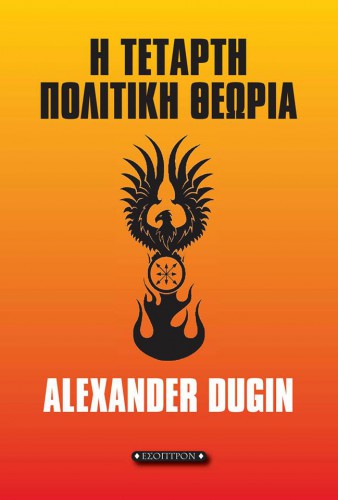 The “Sea Power” will serve us as a proof for this statement. We have seen that the very matrix of this civilization does not only occur in the Modem Period, but also in thalassocratic empires of the Antiquity (e.g., in Carthage), in the ancient Athens or in the Republic of Venice. And within the Modern World itself atlantism and liberalism do not as well find complete predominance over the other trends at once. And nevertheless, we can trace the conceptual sequence through a series of social formations: the “Sea Power” (as a geopolitical category) moves through history taking various forms till it finds its most complete and absolute aspect in the global world where its internal precepts become predominant in a planetary scale. In other words, ideology of the modern mondialism is only a historical form of a more common geopolitical paradigm. But there is a direct relation between this (probably, most absolute) form and the geopolitical matrix.
The “Sea Power” will serve us as a proof for this statement. We have seen that the very matrix of this civilization does not only occur in the Modem Period, but also in thalassocratic empires of the Antiquity (e.g., in Carthage), in the ancient Athens or in the Republic of Venice. And within the Modern World itself atlantism and liberalism do not as well find complete predominance over the other trends at once. And nevertheless, we can trace the conceptual sequence through a series of social formations: the “Sea Power” (as a geopolitical category) moves through history taking various forms till it finds its most complete and absolute aspect in the global world where its internal precepts become predominant in a planetary scale. In other words, ideology of the modern mondialism is only a historical form of a more common geopolitical paradigm. But there is a direct relation between this (probably, most absolute) form and the geopolitical matrix.



 Er ging davon aus, dass unter anderem die Rohstoffreserven der Weltinsel es ermöglichen würden, von dort aus alle anderen Länder zu beherrschen, also solcher in kontinentaler Randlage und langfristig auch den amerikanischen Kontinent, Japan und Australien. Für Mackinder ist damit die Beherrschung des Kernlandes Eurasien der Schlüssel zur Weltmacht. In Deutschland fand seine Theorie so gut wie keine Rezeption und sein
Er ging davon aus, dass unter anderem die Rohstoffreserven der Weltinsel es ermöglichen würden, von dort aus alle anderen Länder zu beherrschen, also solcher in kontinentaler Randlage und langfristig auch den amerikanischen Kontinent, Japan und Australien. Für Mackinder ist damit die Beherrschung des Kernlandes Eurasien der Schlüssel zur Weltmacht. In Deutschland fand seine Theorie so gut wie keine Rezeption und sein 
 del.icio.us
del.icio.us
 Digg
Digg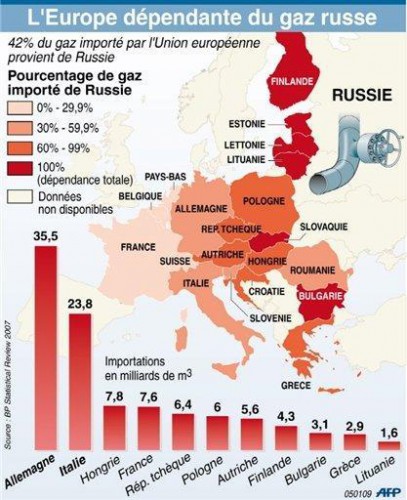
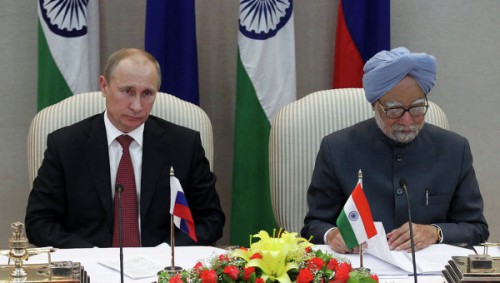
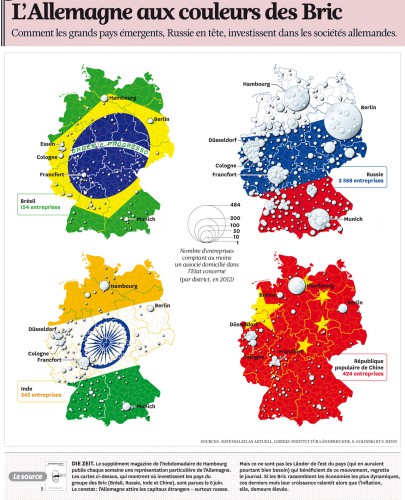
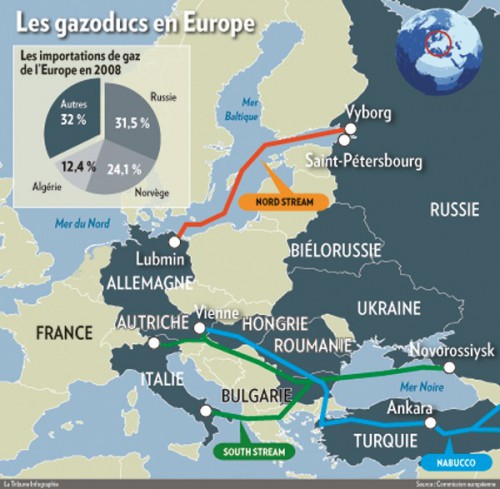
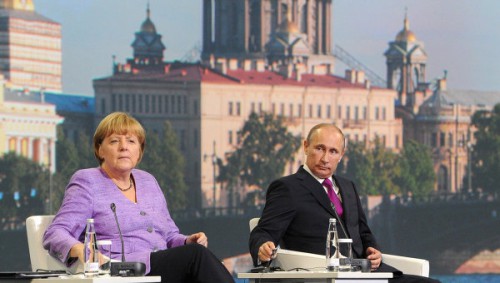


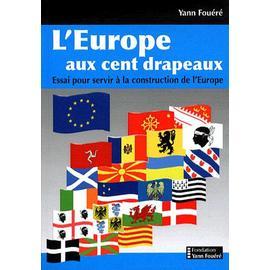




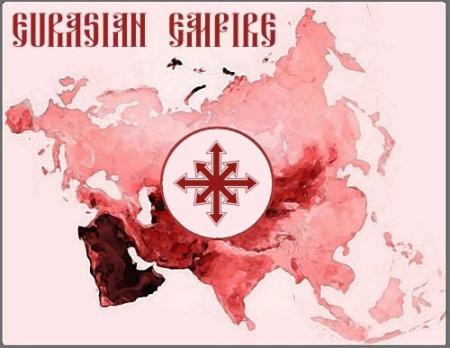
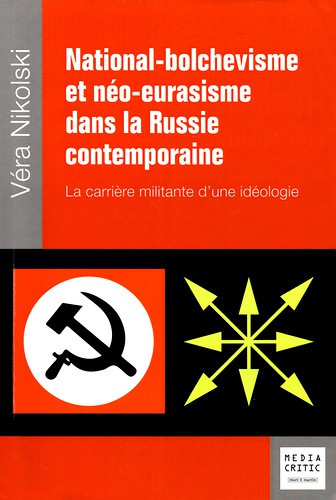 An ethnos is in general any set of individuals, any “collective”: people, population, nation, tribe, family clan, based on a common historical destiny. “Our Great-Russian ancestors–wrote Gumilev–in the 15th, 16th and 17th centuries easily and rather quickly mixed with the Volga, Don and Obi Tatars and with the Buriates, who assimilated the Russian culture. The same Great-Russian easily mixed with the Yakuts, absorbing their identity and gradually coming into friendly contact with Kazakhs and Kalmucks. Through marriage links they pacifically coexisted with the Mongols in Central Asia, as the Mongols themselves and the Turks between the 14th and 16th centuries were fused with the Russians in Central Russia.” Therefore the history of the Muscovite Rus’ cannot be understood without the framework of the ethnic contacts between Russians and Tatars and the history of the Eurasian continent.
An ethnos is in general any set of individuals, any “collective”: people, population, nation, tribe, family clan, based on a common historical destiny. “Our Great-Russian ancestors–wrote Gumilev–in the 15th, 16th and 17th centuries easily and rather quickly mixed with the Volga, Don and Obi Tatars and with the Buriates, who assimilated the Russian culture. The same Great-Russian easily mixed with the Yakuts, absorbing their identity and gradually coming into friendly contact with Kazakhs and Kalmucks. Through marriage links they pacifically coexisted with the Mongols in Central Asia, as the Mongols themselves and the Turks between the 14th and 16th centuries were fused with the Russians in Central Russia.” Therefore the history of the Muscovite Rus’ cannot be understood without the framework of the ethnic contacts between Russians and Tatars and the history of the Eurasian continent.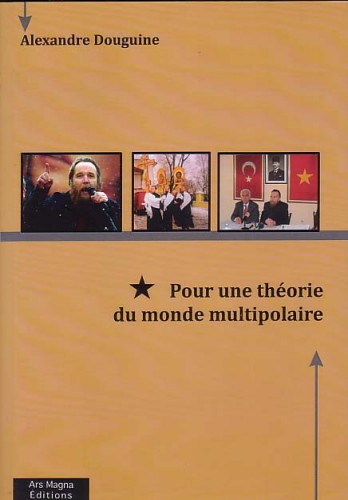 At the theoretical level neo-eurasism consists of the revival of the classic principles of the movement in a qualitatively new historical phase, and of the transformation of such principles into the foundations of an ideological and political program and a world-view. The heritage of the classic eurasists was accepted as the fundamental world-view for the ideal (political) struggle in the post-Soviet period, as the spiritual-political platform of “total patriotism.”
At the theoretical level neo-eurasism consists of the revival of the classic principles of the movement in a qualitatively new historical phase, and of the transformation of such principles into the foundations of an ideological and political program and a world-view. The heritage of the classic eurasists was accepted as the fundamental world-view for the ideal (political) struggle in the post-Soviet period, as the spiritual-political platform of “total patriotism.”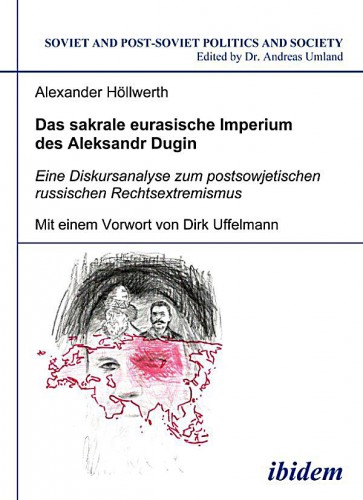
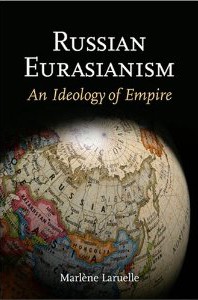 After a brief introduction in which she points to the relevance of the subject, her different approach (as mentioned), and the specific weight of the personalities she choose for presentation, the first chapter is devoted to the original Eurasianism from 1920-1930. This is a rather brief outline, as she has already written a book on the subject (L’Idéologie eurasiste russe ou comment penser l’empire, Paris 1999) , and brings not many new or original informations about a movement, which was the “conservative revolution” á la Russe, borrowing from Fascism and Bolshevism, but denouncing their short-comings and “Western” features. Two things though seem to be central for Laruelle’s understanding of the Eurasianists: the notion of a “geographic identity” for Russians, instead of the Western self-understanding of a “historic” and therefore progressive understanding of the identity of nations (which of course was transferred as “historical materialism” to Russia, and also was promoted by liberals and – inverted – by nostalgic monarchists). Therefore the geographic orientation of Eurasianism lies at the core of the movement, but was paradoxically developed in the Western exile: “The Eurasianist doctrine must be grasped in its fundamentally provocative character. It was born of the malaise of young nationalists who were reluctant to integrate into the host culture and who refused to resign themselves to the thought that links with homeland were definitely broken. Their rejection of Europe can only be understood if we remember that it was elaborated in the West by those Russians who, culturally speaking, were the most Europeanized.” (p. 25) While it is undeniable true, that Eurasianism as self-affirmation could only become self-knowledge in the encounter and subsequently (at least partial) rejection of Western ideologies, Laruelle shows a tendency to psychologize the phenomenon: “(Eurasianism) attempts to theorize what is above all an experience and a feeling: the experience of young men in exile who feel humiliated by the defeat of the Whites and try to understand the reality of the motherland and stay in touch with it.” (p. 47)
After a brief introduction in which she points to the relevance of the subject, her different approach (as mentioned), and the specific weight of the personalities she choose for presentation, the first chapter is devoted to the original Eurasianism from 1920-1930. This is a rather brief outline, as she has already written a book on the subject (L’Idéologie eurasiste russe ou comment penser l’empire, Paris 1999) , and brings not many new or original informations about a movement, which was the “conservative revolution” á la Russe, borrowing from Fascism and Bolshevism, but denouncing their short-comings and “Western” features. Two things though seem to be central for Laruelle’s understanding of the Eurasianists: the notion of a “geographic identity” for Russians, instead of the Western self-understanding of a “historic” and therefore progressive understanding of the identity of nations (which of course was transferred as “historical materialism” to Russia, and also was promoted by liberals and – inverted – by nostalgic monarchists). Therefore the geographic orientation of Eurasianism lies at the core of the movement, but was paradoxically developed in the Western exile: “The Eurasianist doctrine must be grasped in its fundamentally provocative character. It was born of the malaise of young nationalists who were reluctant to integrate into the host culture and who refused to resign themselves to the thought that links with homeland were definitely broken. Their rejection of Europe can only be understood if we remember that it was elaborated in the West by those Russians who, culturally speaking, were the most Europeanized.” (p. 25) While it is undeniable true, that Eurasianism as self-affirmation could only become self-knowledge in the encounter and subsequently (at least partial) rejection of Western ideologies, Laruelle shows a tendency to psychologize the phenomenon: “(Eurasianism) attempts to theorize what is above all an experience and a feeling: the experience of young men in exile who feel humiliated by the defeat of the Whites and try to understand the reality of the motherland and stay in touch with it.” (p. 47)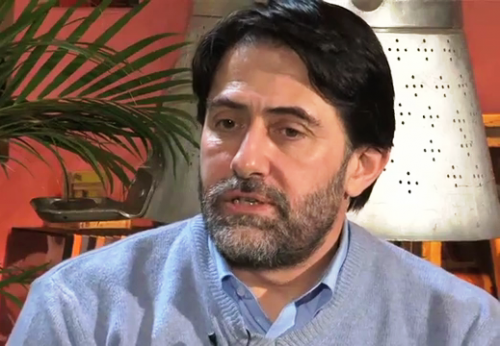
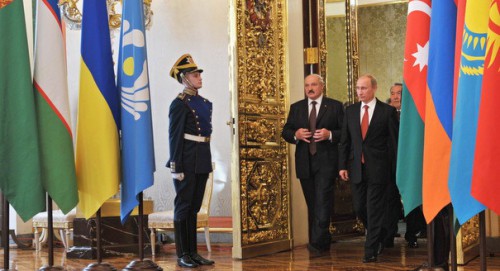
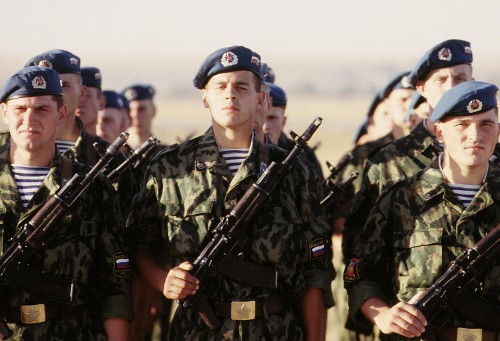
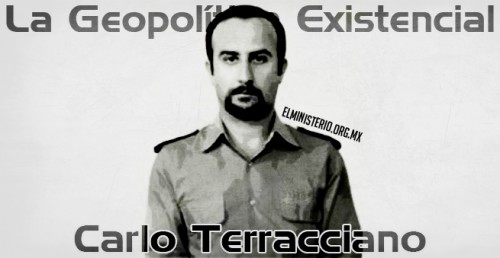
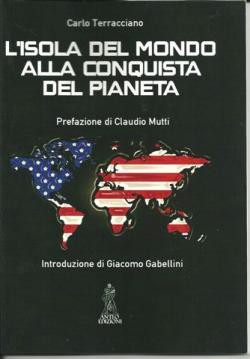 Pero en el primer cuarto del siglo XX, el desafío conceptual de H. Mackinder fue contestado por los geopolíticos que se ubicaron en el lado de la telurocracia. Se trataba, en primer lugar, de la escuela alemana de Karl Haushofer, quien comenzó a desarrollar una base geopolítica telurocrática, Geopolítica-2 (mientras que la geopolítica talasocrática anglosajona se puede llamar “Geopolítica-1″). Así se sentaron las bases para la tradición continentalista.
Pero en el primer cuarto del siglo XX, el desafío conceptual de H. Mackinder fue contestado por los geopolíticos que se ubicaron en el lado de la telurocracia. Se trataba, en primer lugar, de la escuela alemana de Karl Haushofer, quien comenzó a desarrollar una base geopolítica telurocrática, Geopolítica-2 (mientras que la geopolítica talasocrática anglosajona se puede llamar “Geopolítica-1″). Así se sentaron las bases para la tradición continentalista.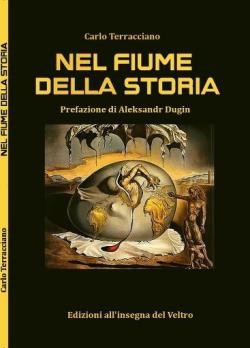 La formación de puntos de vista geopolíticos han estado acompañados por Terracciano con los correspondientes cambios ideológicos y políticos. La apelación a los criterios geopolíticos, los conceptos y la evaluación del significado crucial de telurocracia exigió la revisión de los fundamentos políticos del patriotismo clásico europeo, que por lo general se refiere a la “Tercera Posición” (anti-liberalismo y anti-comunismo), en el espíritu de Evola, Heidegger y Yockey. Si aceptamos el punto de vista de la potencia terrestre, la Unión Soviética pasó inmediatamente de ser uno de los dos enemigos de Europa (junto con el Occidente capitalista liberal, personificada en los EE.UU.) a ser un aliado. Esto requiere una revisión radical de la “Tercera Posición” y la transición a una fusión entre el europeísmo y el sovietismo, el nacional-bolchevismo. Por una evolución semejante a mediados de los 80′ pasó el máximo teórico de la europea “Nouvelle Droite” Alain de Benoist. A diferencia de muchos otros “nacional revolucionarios” Carlo Terracciano, sin dudarlo, aceptó la dirección ideológica nacional-comunista y se convirtió en uno de los líderes del comunismo nacional en Italia. El Anti-sovietismo y el anticomunismo (sobre todo ahora, después de la caída de la Unión Soviética) se convirtieron en obsoletos y sirven como herramientas en las manos de talasocracia, los liberales y los globalistas. Así que cada ciudadano europeo coherentemente revolucionario debe resueltamente terminar con eso y cooperar activamente con todas las fuerzas de izquierda que luchan contra la hegemonía estadounidense y el capitalismo liberal, que encarnan la esencia de la talasocracia y la civilización del mar. Este giro a la izquierda de Terracciano fue la conclusión lógica de su análisis geopolítico, y él ha dado pasos más decisivos en esta dirección uniéndose así con la tradición de la “Joven Europa” (siguiendo el ejemplo de Claudio Mutti, amigo y colega de Carlo Terracciano ), y convirtiéndose en un pionero de las nuevas tendencias nacional-comunistas y eurasiatistas en la política moderna italiana y europea. Para esta posición política Carlo Terracciano consagró todo un libro bajo el expresivo nombre de “Comunismo Nacional”.
La formación de puntos de vista geopolíticos han estado acompañados por Terracciano con los correspondientes cambios ideológicos y políticos. La apelación a los criterios geopolíticos, los conceptos y la evaluación del significado crucial de telurocracia exigió la revisión de los fundamentos políticos del patriotismo clásico europeo, que por lo general se refiere a la “Tercera Posición” (anti-liberalismo y anti-comunismo), en el espíritu de Evola, Heidegger y Yockey. Si aceptamos el punto de vista de la potencia terrestre, la Unión Soviética pasó inmediatamente de ser uno de los dos enemigos de Europa (junto con el Occidente capitalista liberal, personificada en los EE.UU.) a ser un aliado. Esto requiere una revisión radical de la “Tercera Posición” y la transición a una fusión entre el europeísmo y el sovietismo, el nacional-bolchevismo. Por una evolución semejante a mediados de los 80′ pasó el máximo teórico de la europea “Nouvelle Droite” Alain de Benoist. A diferencia de muchos otros “nacional revolucionarios” Carlo Terracciano, sin dudarlo, aceptó la dirección ideológica nacional-comunista y se convirtió en uno de los líderes del comunismo nacional en Italia. El Anti-sovietismo y el anticomunismo (sobre todo ahora, después de la caída de la Unión Soviética) se convirtieron en obsoletos y sirven como herramientas en las manos de talasocracia, los liberales y los globalistas. Así que cada ciudadano europeo coherentemente revolucionario debe resueltamente terminar con eso y cooperar activamente con todas las fuerzas de izquierda que luchan contra la hegemonía estadounidense y el capitalismo liberal, que encarnan la esencia de la talasocracia y la civilización del mar. Este giro a la izquierda de Terracciano fue la conclusión lógica de su análisis geopolítico, y él ha dado pasos más decisivos en esta dirección uniéndose así con la tradición de la “Joven Europa” (siguiendo el ejemplo de Claudio Mutti, amigo y colega de Carlo Terracciano ), y convirtiéndose en un pionero de las nuevas tendencias nacional-comunistas y eurasiatistas en la política moderna italiana y europea. Para esta posición política Carlo Terracciano consagró todo un libro bajo el expresivo nombre de “Comunismo Nacional”.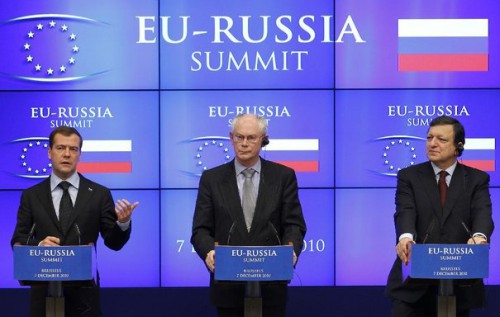
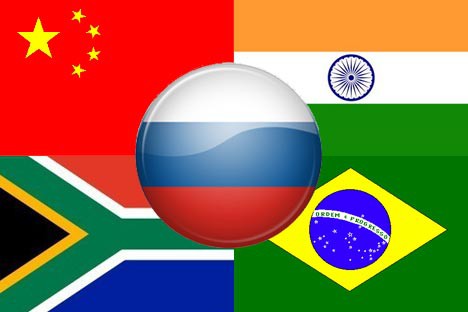


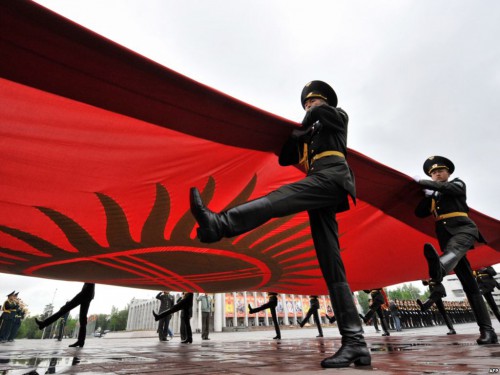
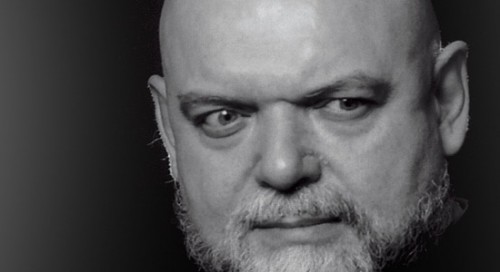
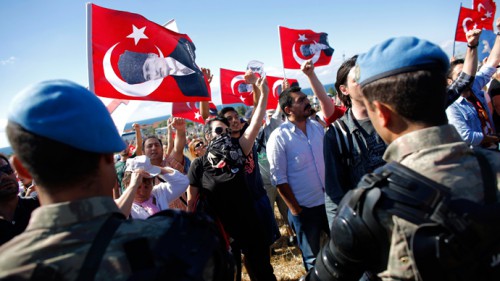
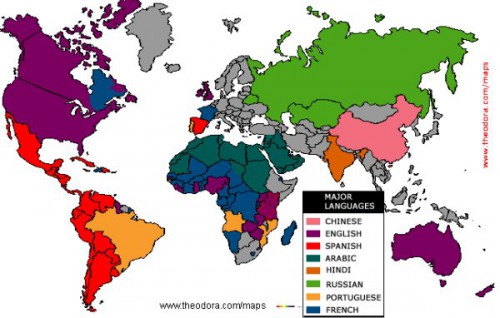
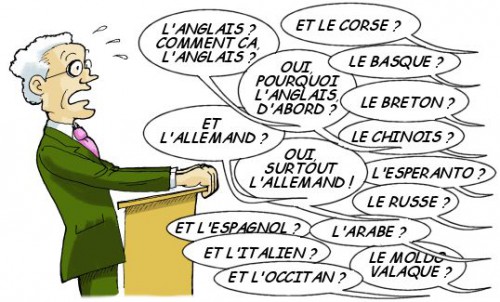
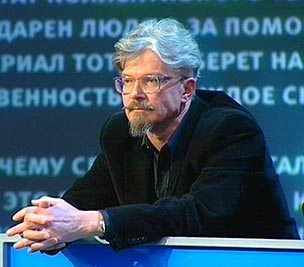
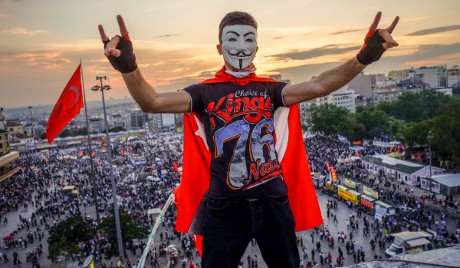
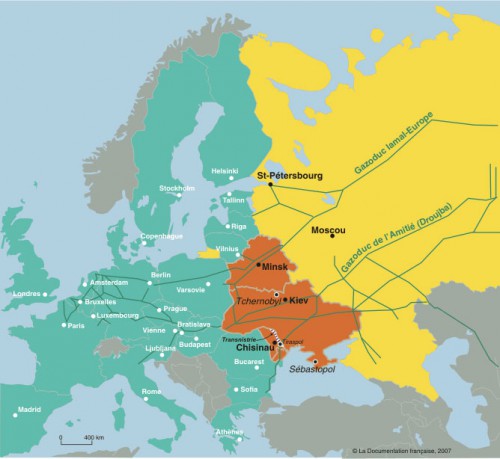

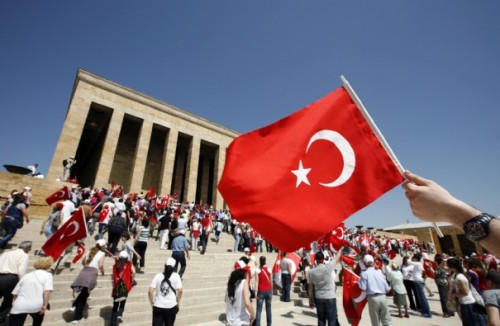
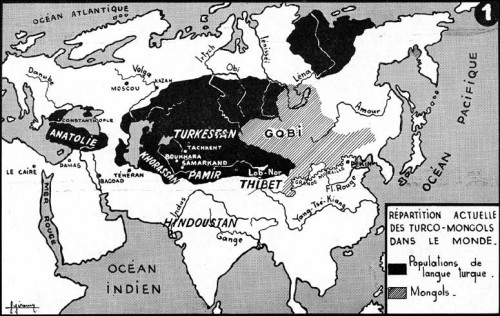
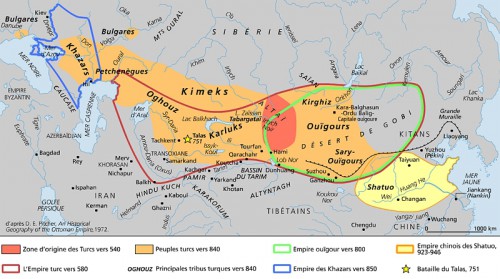
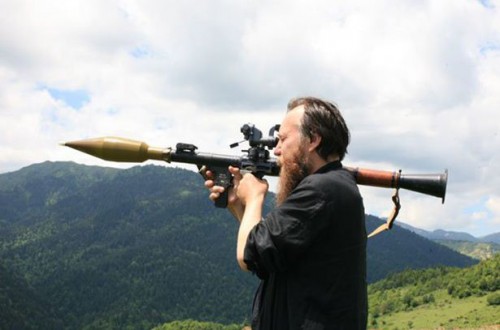

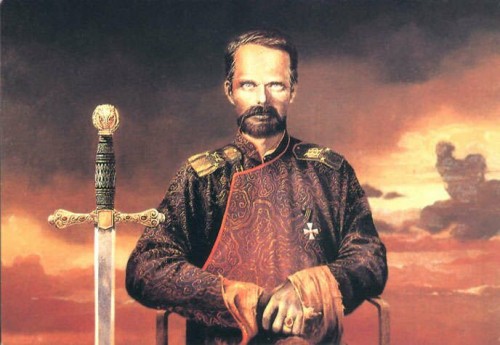
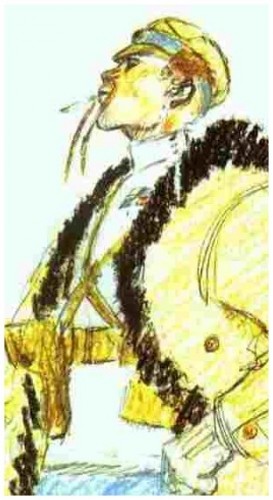 Ungern chiaramente si rendeva conto di tutto ciò e, dalle sue conversazioni con l’ingegnere Ossendowski, già ministro delle Finanze nel governo di Kolcak, risulta evidente come egli cercasse di evocare misticamente il principio opposto, quello solare, che segnava il suo stendardo, riferendosi ad una cultura, quella tantrico-buddhista, che da due millenni lo coltivava. Soltanto che la sua ascesi personale non poteva diventare il mezzo strategico di vittoria per i suoi cinquemila cosacchi, russi sí, mistici forse, ma fatalmente appartenenti ad un mondo orientato verso un’esperienza dello Spirito volta al mondo sensibile esteriore. Nel suo Uomini, Bestie e Dèi, che è la narrazione della sua fuga dalla Siberia alla Mongolia, Ossendowski ci ha lasciato un’impressionante descrizione degli eventi, ma, molto di piú, dell’allucinata atmosfera che regnava sulla ufficialità che attorniava il Barone e fra le sue truppe, sottomesse da anni a spaventose fatiche e ad una disciplina rigidissima e, per giunta, consapevoli del disastro imminente. La narrazione dell’Ossendowski verrà in seguito aspramente criticata (fra gli altri dallo stesso Sven Hedin) per la parte riguardante i suoi viaggi fra gli Altai e la Zungaria. Resta, però, intatta la sua testimonianza sulla figura e sulle avventure del Barone e, soprattutto, sul senso “magico” del destino che ivi si compiva.
Ungern chiaramente si rendeva conto di tutto ciò e, dalle sue conversazioni con l’ingegnere Ossendowski, già ministro delle Finanze nel governo di Kolcak, risulta evidente come egli cercasse di evocare misticamente il principio opposto, quello solare, che segnava il suo stendardo, riferendosi ad una cultura, quella tantrico-buddhista, che da due millenni lo coltivava. Soltanto che la sua ascesi personale non poteva diventare il mezzo strategico di vittoria per i suoi cinquemila cosacchi, russi sí, mistici forse, ma fatalmente appartenenti ad un mondo orientato verso un’esperienza dello Spirito volta al mondo sensibile esteriore. Nel suo Uomini, Bestie e Dèi, che è la narrazione della sua fuga dalla Siberia alla Mongolia, Ossendowski ci ha lasciato un’impressionante descrizione degli eventi, ma, molto di piú, dell’allucinata atmosfera che regnava sulla ufficialità che attorniava il Barone e fra le sue truppe, sottomesse da anni a spaventose fatiche e ad una disciplina rigidissima e, per giunta, consapevoli del disastro imminente. La narrazione dell’Ossendowski verrà in seguito aspramente criticata (fra gli altri dallo stesso Sven Hedin) per la parte riguardante i suoi viaggi fra gli Altai e la Zungaria. Resta, però, intatta la sua testimonianza sulla figura e sulle avventure del Barone e, soprattutto, sul senso “magico” del destino che ivi si compiva.